
A Quick Travel Guide To Visiting Lake Malawi
Updated July 2024, A Quick Travel Guide To Visiting Lake Malawi was originally published in January 2021
Lake Malawi was the most relaxing part of my two month trip across Southern Africa a few years back (not including my grand finale at an all-inclusive resort in Zanzibar). I will admit, a lot of it was spent lazing in on the beaches around and swimming in Lake Malawi.
Despite being quite lazy on the Malawi leg of my trip, I still managed to squeeze in time to visit a couple of lakeside villages and shopped for lovely handmade wood carvings.
Malawi is hands down one of the best countries in Africa for backpackers with a surprisingly wide network of hostels and lakeside campsites. Though don’t come to Malawi with a plan to fast track the entire country- things move slowly in Malawi, you could even argue more slowly than any of its neighboring countries. Some may complain about the snail’s-pace of moving about in Malawi, but honestly (for me anyway) it’s one of Malawi’s great blessings.
Going to or coming from Zambia? Don’t miss South Luangwa National Park or the Devil’s Pool
Need Travel Insurance and Evacuation Services for Malawi?
Start shopping for travel insurance plans over at IATI Insurance . Readers of the Adventures of Nicole get a 5% discount off your plan.
The Adventures of Nicole partners with Global Rescue to offer the world’s leading medical evacuation and security advisory services. To travel with peace of mind, shop evacuation coverage at Global Rescue .
Destinations Around Lake Malawi
Northern malawi.
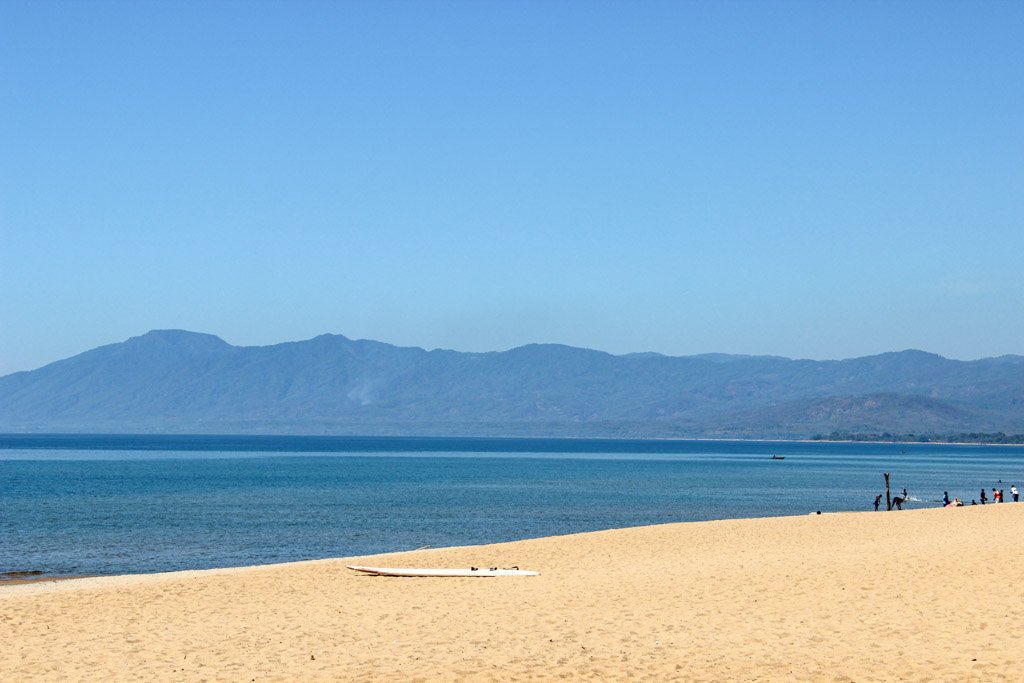
Kande
Kande Bay is a bit further south than Nkhata Bay and is a bit quieter in comparison, making it the perfect place to relax and dig your toes into the golden sands on the shores of Lake Malawi.
I ended up spending 4 days in Kande when I visited Lake Malawi, just hanging out and enjoying the calm after almost 6 weeks of nonstop travel.
Where To Stay In Kande
- Kande Beach Lodge & Camp
Nkhata is a port and fishing town on the northern shores of Lake Malawi, just 50 kilometers east of Mzuzu, and a backpacker center of Malawi.
If you’re planning to base yourself in one place on your visit to Lake Malawi and day trip out, Nkhata Bay isn’t a bad option.
Where To Stay In Nkhata Bay
- Butterfly Space Lodge
Sat against a backdrop formed by the Livingstonia and Nyika mountains, and flanked by golden sand beaches lined with banana palms and papaya trees, Chitimba ended up being my favorite place I visited in Malawi.
Chitimba is located at the far north of Lake Malawi, making it a good starting/ending point for those coming from or leaving to southern Tanzania or northern Zambia.
Don’t miss the opportunity to explore Manchewe Falls, and nearby Nyika National Park and Vwaza Marsh Wildlife Reserve while you’re staying in Chitimba. The village that sits just beyond the beach is worth spending some time in for the opportunity to learn a bit more about the area and purchase intricate wood carvings.
Where To Stay In Chitimba
- Chitimba Camp
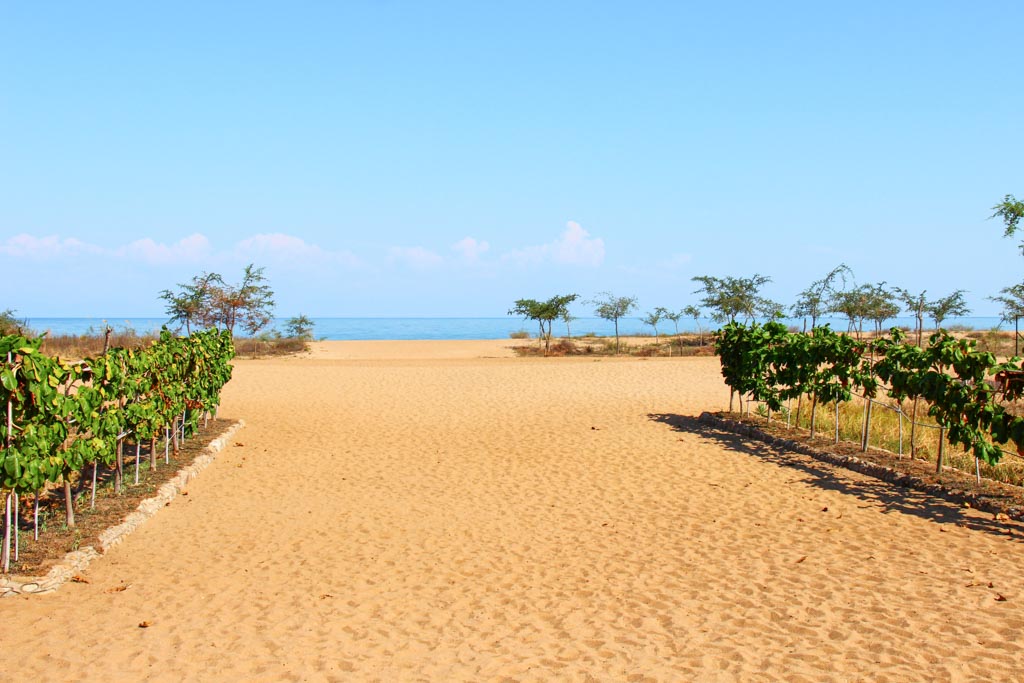
Continuing on to Tanzania afterward? Check out why you should visit Mikumi National Park
Central Malawi
Nkhotakota is a port town on the shores of Central Malawi. Nkhotakota is a great place to base yourself for exploring other parts of Central Malawi. Don’t miss viewing elephants and other wildlife at Nkhotakota Wildlife Reserve, lazing on Mwaya Beach, Mawira hot springs, and visiting nearby Chia Lagoon.
Where To Stay In Nkhotakota
- Sitima Inn
- Yanu Yanu Lodge
- Pick n Pay Resort
Likoma & Chisumulu Islands
Likoma and Chisumulu are the only two inhabited islands in Lake Malawi, both of which are enclaves that sit within Mozambique’s waters.
Likoma is the more often visited of the two, with access by both air and ferry. The Ilala ferry arrives from Chilumba and continues onto Monkey Bay and then makes the same trip in reverse a couple of times per week.
Likoma Island is home to some of Malawi’s most luxurious lodges.
Where To Stay On Likoma Island
- Chiponde Resort
- Mango Drift Lodge

Southern Malawi
Cape maclear.
Reachable by bus from other parts of Malawi or by taking the Ilala ferry from Chilumba or Likoma Island to Monkey Bay and grabbing a taxi, Cape Maclear sits on the southern shores of Lake Malawi. Life moves quite slow in Malawi’s south, making Cape Maclear a great place to kick back and relax, and a perfect base for exploring the remainder of southern Malawi.
If you want to get off the beaten path in southern Malawi, you can head to Domwe Island located 5 kilometers off the coast from Cape Maclear (I 100% regret not heading out here!). There are fully equipped tents for rent on Domwe, or you can bring your gear and do it yourself.
Where To Stay In Cape Maclear
- Fat Monkeys Lodge
- Mgoza Lodge
- Annie’s Lodge Cape Maclear
- Beachside Cottage
Grab a copy of Bradt’s Malawi guidebook to help you start planning
Monkey Bay is located just south of Cape Maclear, making it easy to stay in one place and visit the other. The Ilala Ferry that starts from Chilumba arrives at Monkey Bay connecting with other parts of Malawi.
Similar to nearby Cape Maclear, Monkey Bay has a slow and laid back atmosphere. Plan to enjoy the beach or take a kayak trip to explore the coast and small offshore islands.
Where To Stay In Monkey Bay
- Mufasa Eco Lodge
- Monkey Bay Beach Lodge
- Norman Carr Cottage
Liwonde National Park
Liwonde National Park is Malawi’s most popular park, conveniently located north of the city of Blantyre. You can arrange a riverboat safari, 4WD safaris, walking safaris, and even canoe safaris to explore this long and narrow national park that sits on the Shire River.
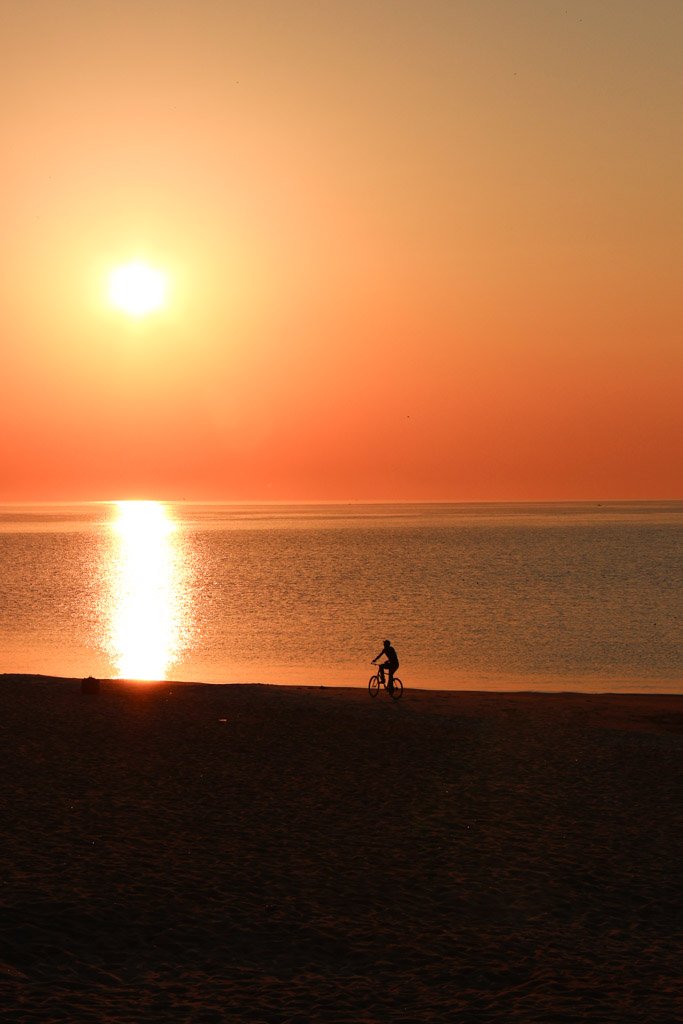
Visiting Zimbabwe on your trip across southern Africa? Make sure to stop into Victoria Falls, Zimbabwe
Getting Around Lake Malawi
- By bus: Buses connect many of the larger towns cities around Lake Malawi. The main bus company is AXA Coach Services.
- By ferry: The Ilala Ferry runs between Chilumba and Monkey Bay, making the trip each direction once per week. Know that taking the ferry is quite slow. See an updated Ilala Ferry schedule here .
- By car: You can hire your own, or hire a driver and car for the duration of your trip. Of course, the price will vary greatly depending on time length, and distances for hiring a car and driver. Shop rental cars on Expedia and Skyscanner .
- On overland tour: Several overland tour companies offer trips in southern Africa that include a visit to Lake Malawi. Check out overlanders through Malawi on Intrepid and GAdventures .
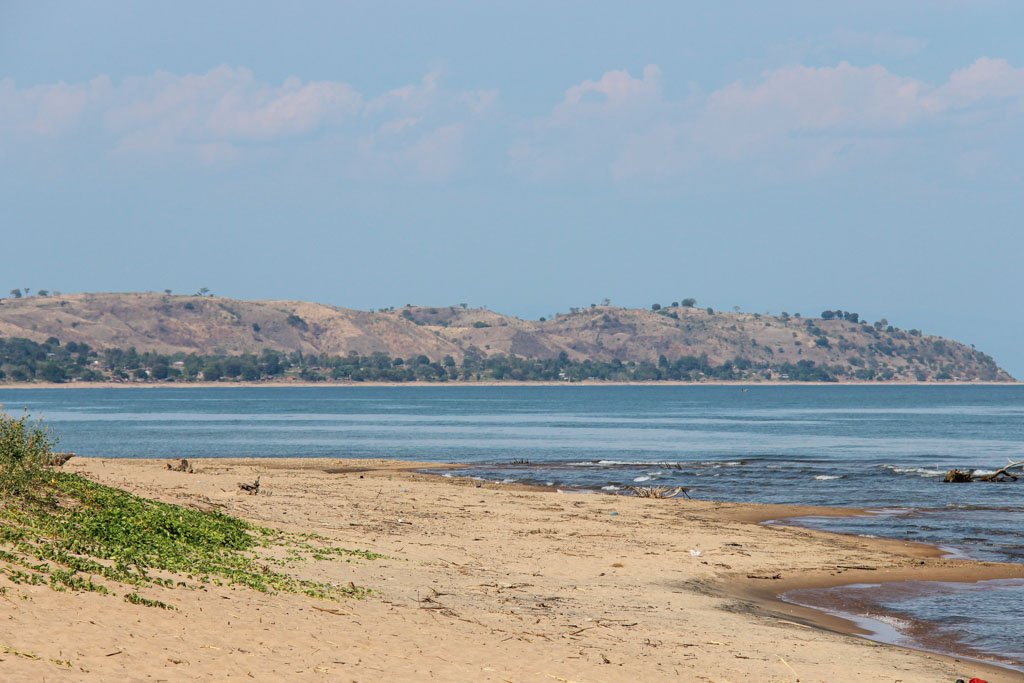
Have Any Questions About Visiting Lake Malawi?
Ask in the comments section below.
More posts from Malawi:
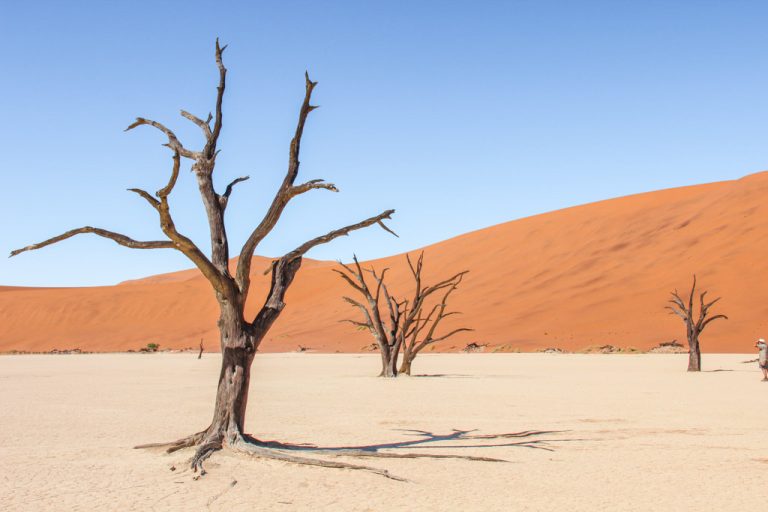
The Namibian Sossusvlei: Plan The Perfect Visit
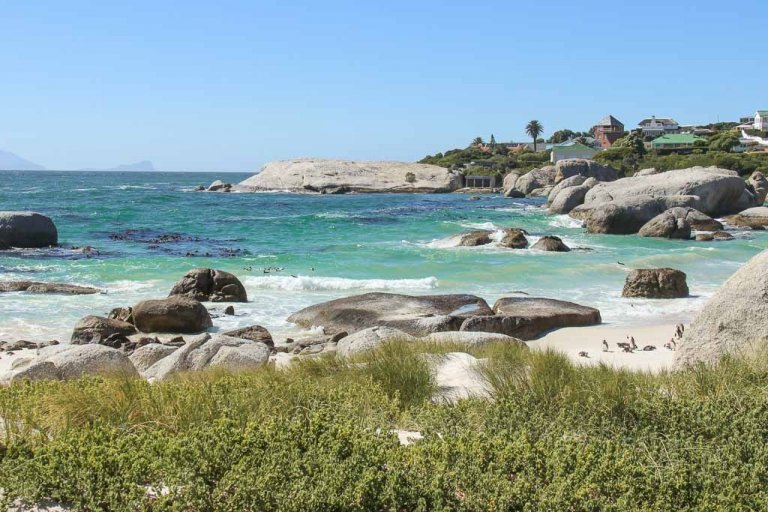
3 Days in Cape Town
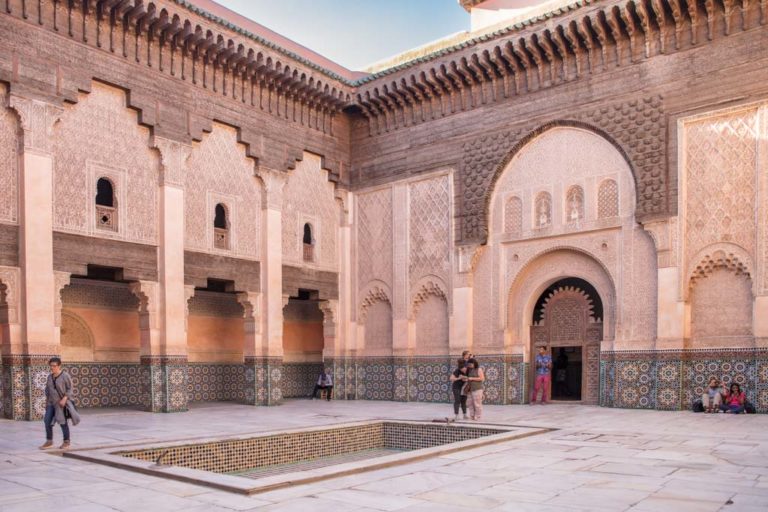
10 Best Things to do in Marrakech + Two Day Marrakech Itinerary
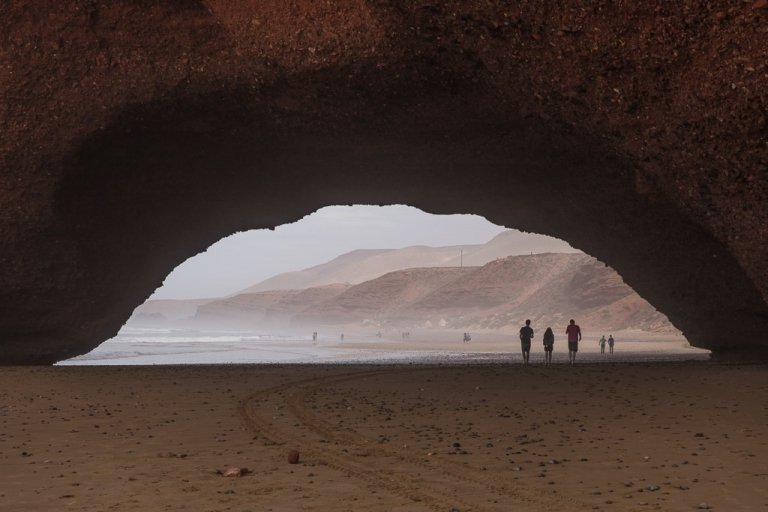
19 Best Things To Do In Morocco
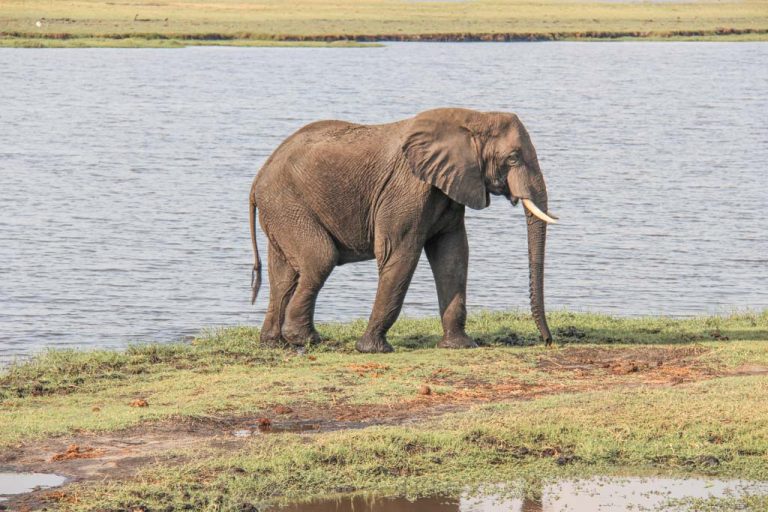
Visiting Chobe National Park By Safari
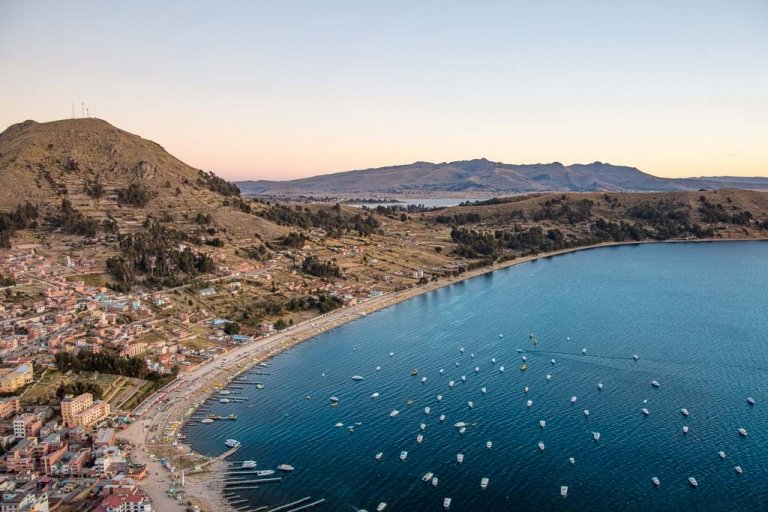
9 Unique & Cheap Places To Travel In Summer 2024
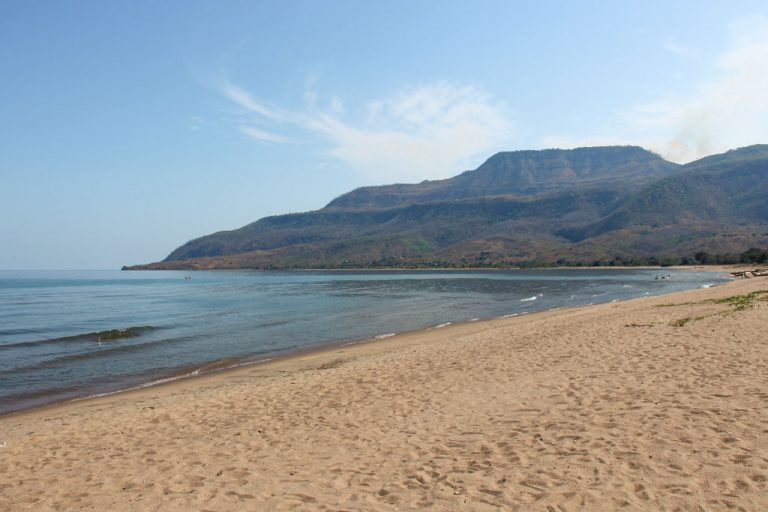
Merzouga Tips: Recommendations for Moroccan Desert Tours
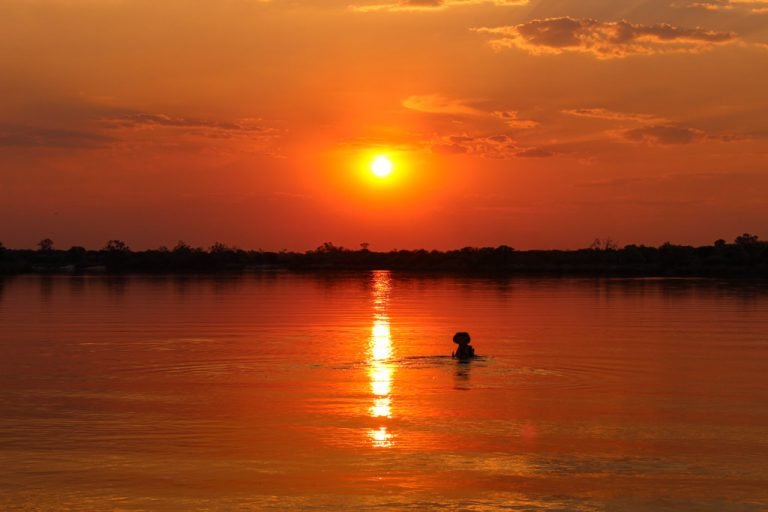
Visiting Bwabwata National Park, Namibia
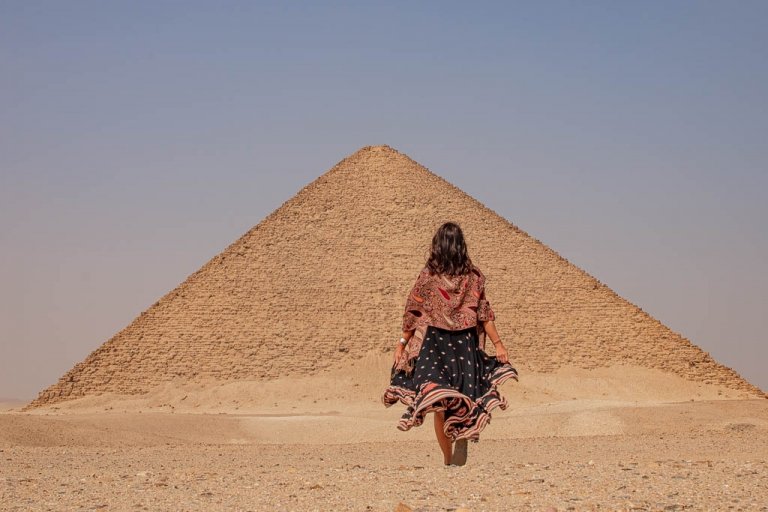
Why You Need To Visit The Dahshur Pyramids In Egypt
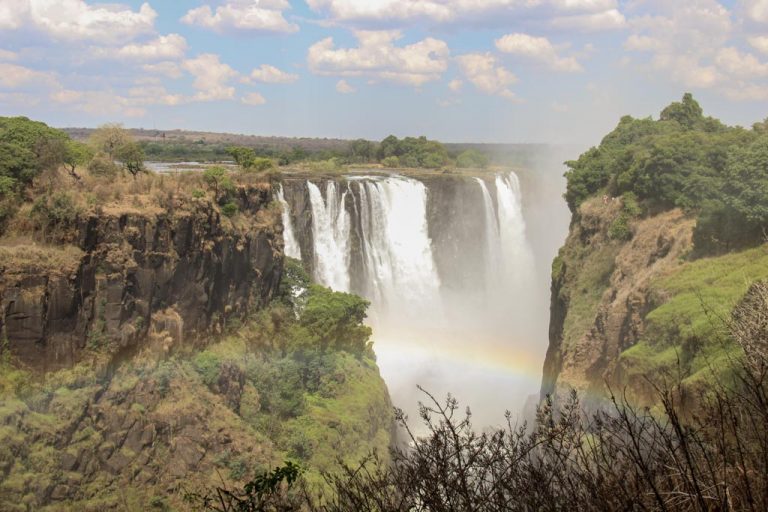
A Guide To Visiting Victoria Falls, Zimbabwe
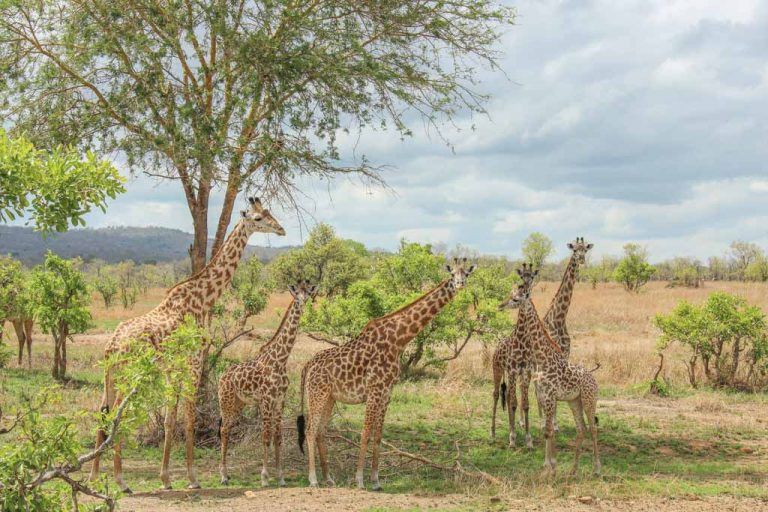
Mikumi National Park, Tanzania Off The Beaten Path
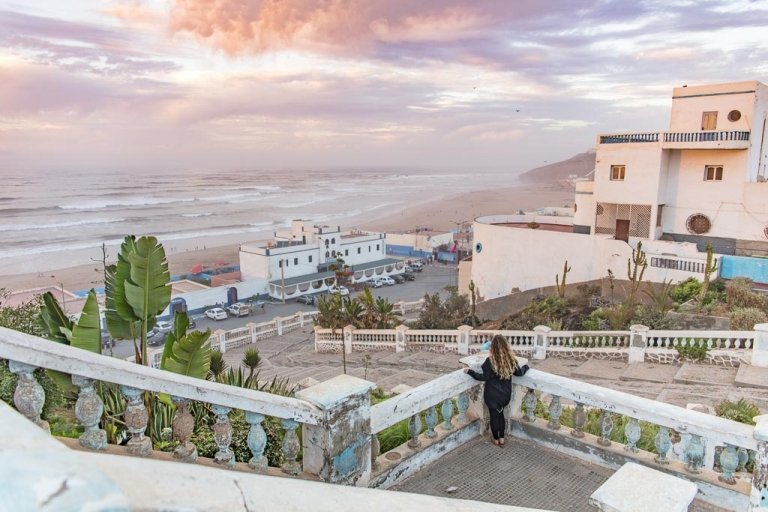
Southern Morocco Road Trip Itinerary
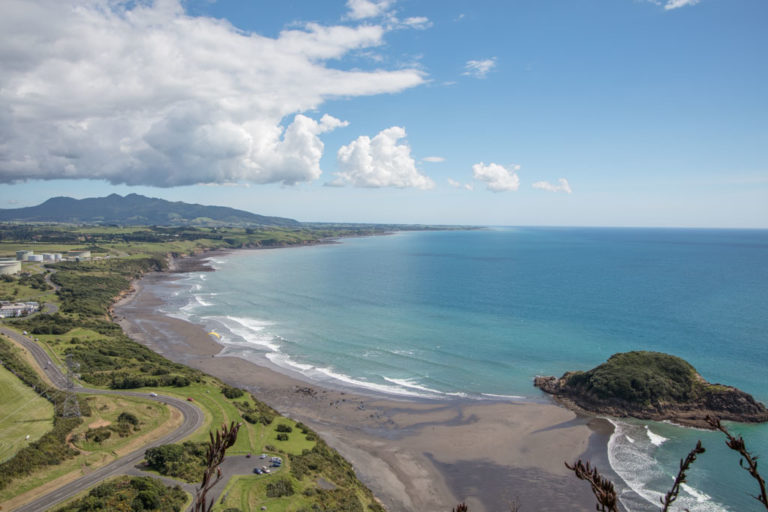
The Best Road Trips In The World
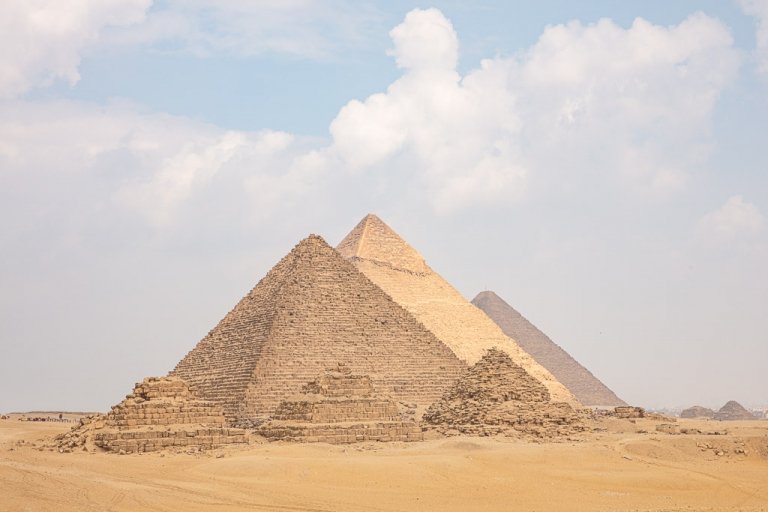
Cairo Travel Guide + 12 Things To Do In Cairo
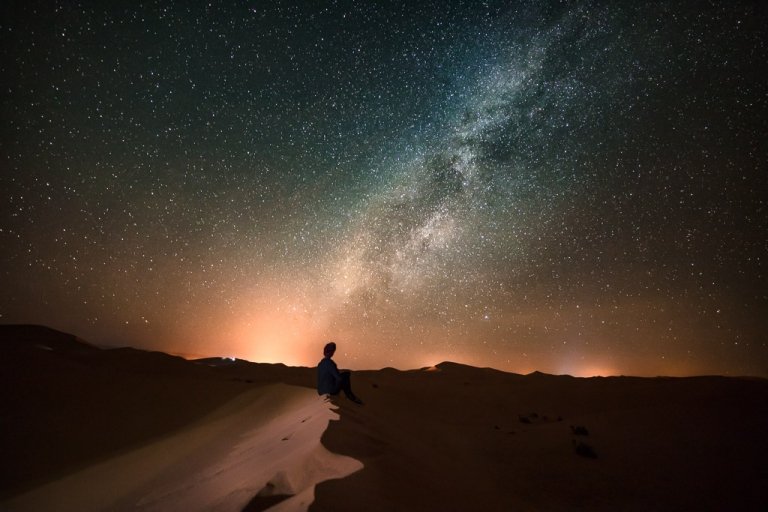
What It’s Like To Spend The Night In The Sahara Desert
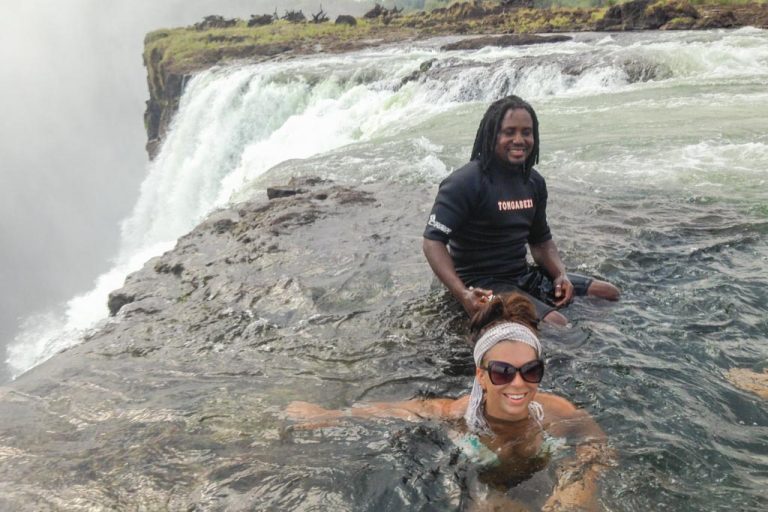
Visiting The Devil’s Pool At Victoria Falls, Zambia
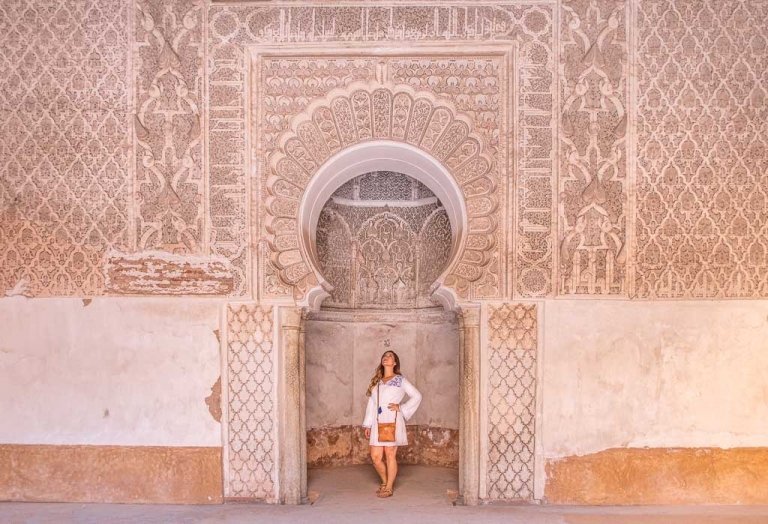
How to Survive Marrakech as a Woman: Tips for Female Travel in Marrakech
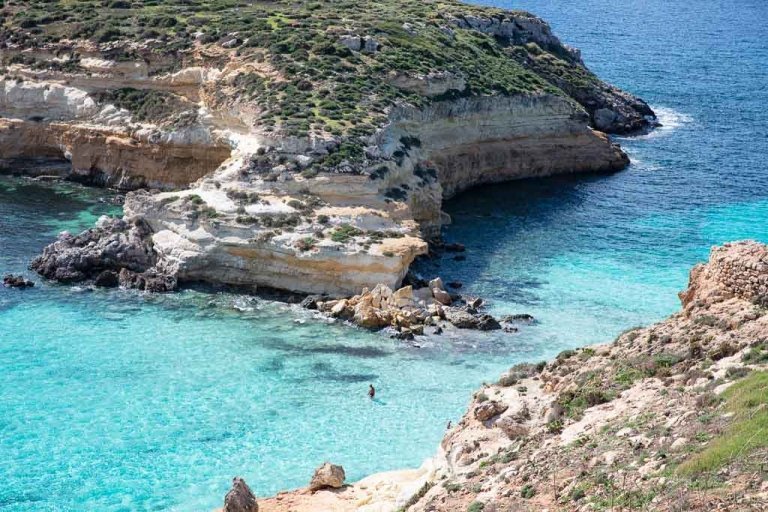
Lampedusa Travel Guide: Italy’s Southernmost Island
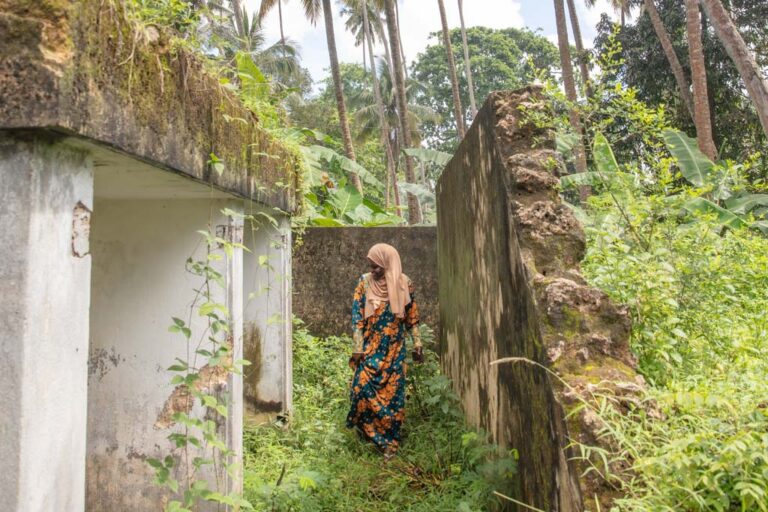
Zanzibar’s Abandoned WWII Bunkers in Mangapwani
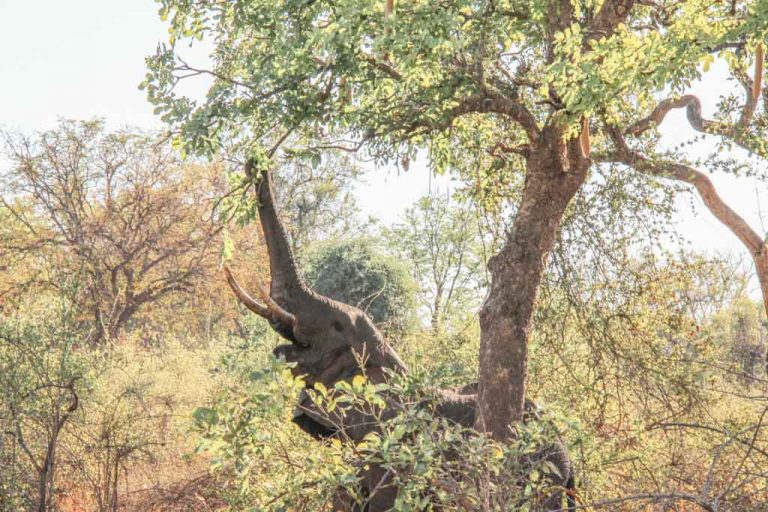
Visiting South Luangwa National Park, Zambia
Leave a comment cancel reply.
Your email address will not be published. Required fields are marked *
Notify me of followup comments via e-mail. You can also subscribe without commenting.
This site uses Akismet to reduce spam. Learn how your comment data is processed .

How to Visit Beautiful Lake Malawi
By: Author Zachary Friedman
Posted on Last updated: July 14, 2024
Categories Malawi , Tanzania
Home » Africa » Tanzania » How to Visit Beautiful Lake Malawi
Lake Malawi is one of Africa’s Great Lakes of the Rift Valley. It lies between three countries, Malawi, Mozambique, and Tanzania. This guide is designed to help you plan your trip to this spectacular lake. First I’ll explain, step-by-step, how to travel to Lake Malawi from each country. Next, I’ll list some of the best things to do at the lake. Finally, I’ll outline a couple of dangers at the lake and how to avoid them.
I recently visited Lake Malawi during my 6 month backpacking trip across Africa. It was definitely a highlight. In this guide, I’ll share my experience. Hopefully, this guide makes your visit to Lake Malawi a bit smoother and easier.

Key Takeaways
The best time to visit is in the dry season between May and July but you can visit year-round. You can visit Lake Malawi from Malawi, Mozambique, or Tanzania. Most people visit from Malawi. Two of the most popular places to visit include Cape Maclear and Monkey Bay. Likoma or Chizumulu Islands are also popular destinations you can visit by ferry. You can travel to Lake Malawi by direct coach from Lilongwe or by minibus. A few of the best things to do include making a visit to Lake Malawi National Park, going to the beach, diving, boating, eating fresh fish, sailing, fishing, hiking, and relaxing. There is bilharzia in Lake Malawi. This is also a malaria zone. You’ll need to take some precautions to stay safe.
Table of Contents
- When to visit
- How to get to Lake Malawi
- Things to do on Lake Malawi
- Staying safe
A Bit of Information About Lake Malawi
Located between Malawi, Tanzania, and Mozambique, Lake Malawi ranks as the ninth-largest lake in the world. It is the third-largest and second-deepest in Africa, after Lake Tanganyika. It is the southernmost lake in the East African Rift system. Lake Malawi is also known as Lake Niassa in Mozambique and Lake Nyasa in Tanzania. The lake has been supplying the surrounding villages with fish for thousands of years.
Lake Malawi stretches over 365 miles long (580 kilometers), approximately from north to south, and is about 52 miles wide (75 kilometers) at its widest point. For this reason, it’s also known as the ‘Calendar Lake’.
Lake Malawi is known for its biodiversity. This freshwater lake is home to more fish species than any other lake on Earth. This includes the colorful cichlids, known locally as “mbuna”. This makes it an excellent destination for snorkelers and divers. There are hundreds of mbuna species living in the lake.
When to Visit Lake Malawi
Because temperatures are always pleasant, Lake Malawi is an excellent place to visit year-round. With that being said, the best time to visit the lake is in the dry season between May and July. Temperatures will also be cooler at this time as it is winter in the southern hemisphere. The wet season runs from October through March.

How to Get to Lake Malawi
Lake Malawi can be accessed from three countries, Malawi, Mozambique, and Tanzania. Most tourists visit the lake from Malawi. The southern shore in Malawi is the most popular part of the lake to visit because it is the easiest to access. It also has the best tourist infrastructure. Below, I outline how to access the lake from each country.
Visiting Lake Malawi from Lilongwe
Transportation infrastructure is pretty poor in Malawi. Coaches run along the main highway between major cities such as Karonga, Mzuzu, Lilongwe, and Blantyre. When visiting the lake, you’ll have to take minibusses to get around. For more information on bus travel, check out my Ultimate African Bus Guide.
How to Travel from Lilongwe to Cape Maclear or Monkey Bay by Bus
The most popular destinations on the lake in Malawi are Monkey Bay and Cape Maclear. There are two bus options to get there:
- Direct coach- There is a direct bus running from Lilongwe to Monkey Bay. There is no schedule. The bus just leaves when it’s full. While it is more convenient that you don’t have to change buses, the direct bus is very slow. You may also have to wait around for a few hours for it to fill up and leaves Lilongwe.
- Minibus- To get to Monkey Bay, you’ll have to take a series of minibusses from Lilongwe. Depending on the route, this could be 4-5 different buses. Each driver will pass you off to the next bus going in your direction. You won’t get lost. They know that, as a tourist, you are headed to the lake. Even though it is a hassle to transfer so many times, the minibus turns out to be faster and more reliable as there are many buses operating the route each day.

How to travel to Monkey Bay by Minibus
- First, head down to the main bus station near Devil Street. The bus station is located at 2Q4G+7R Lilongwe, Malawi . (This address is a plus code. Click the link or paste it into Google maps to view the exact location of the bus station.)
- Once you arrive at the station, ask around for a bus to Monkey Bay. Here, you can see what is available. I recommend the minibus. If you get lucky and a big direct bus is almost full and about to leave, take it. It will be slower but much less stressful.
- After you find your bus, you will pay for a ticket. I don’t remember exactly what it cost. I think around $3. Even though you won’t be on the same bus the whole way, you will pay the full amount to the first bus driver. This covers your fare all the way to the Monkey Bay. It seems scammy because they won’t’ tell you that you’ll have to transfer. The drivers have some kind of deal where you pay one the full amount and they sort out the transfer payments among themselves.
- You may be asked to pay again by a shady driver. Just tell them that you already paid the last driver. They are just trying to scam you for more money. Again, your previous driver should sort out the transfer for you.
- After 4-5 transfers, you will arrive in Monkey Bay.
How to Travel from Monkey Bay to Cape Maclear
Most travelers choose to stay in Cape Maclear. It is a small, quiet fishing village right on the shore of the lake. Several budget hotels and hostels can be found on the shore of the lake. To get there, you must take a motorcycle taxi from Monkey Bay. The taxi costs $2-$4 and takes about 15-20 minutes depending on how fast your driver goes.
This ride takes you through some beautiful hills and jungle on your way to the lake. It was one of my favorite parts of the visit except for the fact that the driver was going dangerously fast the whole way, racing his friend all the way.

How to Travel to Likoma or Chizumulu Island
Likoma and nearby Chizumulu are two small islands in Lake Malawi which belong to Malawi but are located in Mozambique waters. These tiny, remote islands have a few small villages and some beautiful beaches. There are no paved roads on the islands. Electricity is available at night and is provided by a generator.
The MV Ilala Ferry
Also known as the Ilala II, the MV Ilala is a World War II era boat which carries people and goods across the lake. It is often out of service and doesn’t always run on time.
The islands can be accessed from two ports in Malawi
- Nkhata Bay- The Ilala ferry leaves at 8 pm on Tuesday nights and heads South to Likoma Island. It arrives early in the morning on Wednesday.
- Cape Maclear- The Ilala ferry leaves on Saturday and arrives on Likoma Island on Sunday.
Accommodation on Likoma Island
As Likoma island is a tourist destination, there are a few options. A few budget guesthouses and hostels can be found on the island along with a couple of higher end lodges catering to ecotourist.
How to Visit Lake Malawi (Lake Nyasa) From Tanzania
The Tanzania side of the lake is probably the least popular among tourists. It is remote, difficult to access, and has the least tourist infrastructure. All the more reason to visit! Tanzania has two lakeside towns that you can visit.
Visiting Matema, Tanzania
Matema is the only town on the north shore of Lake Malawi with tourist infrastructure. Several resorts and campsites can be found along the beach. This would be a convenient place to stopover while traveling from Tanzania to Malawi overland. From the town of Kylea, which you will pass through on your way to Matema, you are just a short distance to the Songwe border crossing to Malawi.
How to get to Matema from Dar es Salaam
- From Dar es Salaam, the easiest way to get to Matema is to first take a coach to Mbeya. You can buy tickets at Ubungo bus station. For step-by-step instructions to this bus route, check out my guide: How to Travel from Dar es Salaam, Tanzania to Lilongwe, Malawi by Bus . It includes information on tickets, bus times, station locations, and more.
- From the small town of Mbeya, head to the bus station and catch a minibus to the town of Kylea. This ride takes about 2.5 hours.
- From Kylea you will have to catch a shared taxi to Matema. This ride takes about 1.5 hours.
- Ask the driver to drop you off at the hospital. It is located in the center of town within short walking distance of several budget accommodation options.
Visiting Mbamba Bay, Tanzania
Mbamba Bay is a small fishing village on the Eastern shore of Lake Malawi. The town has a few small budget hotels to choose from. Just outside of town there are a couple of lodges. I haven’t been to Mbamba Bay but I’ve heard that it is pretty basic. It’s much less touristy than Matema.
To get to Mbamba Bay from Dar es Salaam
- In Dar es Salaam, head down to Ubungo Bus Station and buy a ticket to Songea. You will want to buy your tickets at least a day in advance. I believe there is a daily bus operating this route.
- From the town of Songea, catch a shared taxi or minibus to Mbamba Bay.
This is a long journey. Depending on the timing of the bus, you may need to spend the night in Songea. You may want to stay there anyway to break the trip up a bit. This is a pretty remote part of Tanzania where not many tourists venture.
Visiting Lake Malawi (Lago Niassa) From Mozambique
Mozambique is a big country. Traveling to Lake Malawi from the capital, Maputo, will require at least two days by bus. The easiest way to reach the Mozambique side of Lake Malawi is by ferry from Malawi. There are three lake towns that you can visit in Mozambique. Most travelers crossing the lake by ferry will choose to stop on Likoma or Chizumulu Island.
Visiting Cobue, Mozambique
From Likoma Island (Malawi), it is a 3km ferry ride to the town of Cobue, Mozambique. The ferry operates twice per week. Here, you can go through immigration and customs to enter Mozambique. This small port town that is only connected to the rest of the country through an old dirt road. If you plan to travel further into Mozambique, you can catch a ferry headed down the lake to the town of Metangula. I believe minibusses also make this trip.
Visiting Metangula, Mozambique
From Likoma Island (Malawi), a ferry runs twice per week to Metangula, Mozambique. Here, you can pass through immigration and customs to enter Mozambique. From Metangula, you can connect to the rest of the country by bus.
Accommodation options in Metangula are limited. I believe a couple of budget hotel options are available. There are also a couple of higher end lodges on the lake.
Visiting Meponda, Mozambique
Meponda can be accessed by a weekly ferry from Metangula, Mozambique. It is also connected by bus with the rest of the country.
Accommodation options in Meponda are limited. I believe a couple of budget hotel options are available as well as a higher end lodge located in.

Things to Do at Lake Malawi
1. visit lake malawi national park.
Established in 1980 and listed as a UNESCO World Heritage site, Lake Malawi National Park is the world’s first freshwater national park. Covering about 94 square kilometers, the park encompasses the southern end of the lake around Cape Maclear.
Lake Malawi National Park is a sanctuary for diverse wildlife. It is known for its unique freshwater fish diversity. With over 1,000 tropical fish species, many of which are endemic to Lake Malawi, it is a haven for snorkeling and scuba diving enthusiasts.
For those seeking an eco-friendly stay, numerous eco-lodges within the park offer a harmonious blend of comfort and sustainability. Kayaking along the lake’s tranquil waters is another popular activity. There are also sandy beaches, lagoons, swamps, and wooded areas to explore.
2. Visit Liwonde National Park and the Shire River
Just south of Lake Malawi, lies the magnificent Shire River, the largest river in the country. The Shire River is the only outlet of Lake Malawi. It flows into the Zambezi River in Mozambique. This impressive waterway courses its way through the heart of Liwonde National Park, Malawi’s premier wildlife reserve.
Covering an area of about 340 square miles (548 square kilometers), Liwonde National Park is home to a diverse range of ecosystems from riverine swamps and woodland areas to grassland plains. The park boasts a rich variety of wildlife including large herds of elephants, the endangered black rhino, and a multitude of bird species.
One of the best ways to explore the park is by embarking on a boat safari along the Shire River. This offers a unique vantage point for viewing hippos, crocodiles, and a wide array of water birds. Guided walking safaris and game drives are also popular activities, providing opportunities to observe the park’s terrestrial wildlife up close.
3. Go Swimming
Because of the warm climate, the water feels great year around. You should know that Lake Malawi is contaminated with the Bilharzia parasite. Whether or not you want to take the risk is up to you. You can read more about that in the following section.
4. Go to the Beach
Absolutely beautiful sandy beaches surround the lake. It looks like the sea in many parts because you can’t see across. Lake Malawi is a great place to sit out in the sun, read a book, or just relax.

5. People Watch
I found this particularly interesting. Locals use the lake for cleaning every day. Watch them wash dishes, do laundry, and bathe in the lake. Many people here still live a traditional lifestyle. A human population has lived around Lake Malawi for tens of thousands of years.
6. Go for a Boat Ride
You can rent kayaks or canoes at many places around the lake. This is a great way to get some exercise and explore the area under your own power.
If you prefer not to row, you can also go on a motorboat tour of the area. Tour guides will find you. Be sure to negotiate hard as they like to overcharge tourists.
7. Other Water Sports
Paddleboarding and water skiing are also available on Lake Malawi. You can rent paddleboards on the lake shore. Water skiing tour can be organized through your hotel or one of the tour guides working on the beach. Be sure to negotiate hard for rentals and tours.
8. Eat Some Fish
People have been fishing in Lake Malawi for thousands of years. The lake provides the people of the region with a significant portion of their diet. Try the fish. Low-cost barbecue fish restaurants can be found all around the lake.
9. Go for a Walk or Hike
The area around the lake is pretty quiet. Most lakeside villages don’t even have paved roads. Wondering through the trails and hills outside of town can make for a nice afternoon. Low traffic makes walking around safe.
10. Go Snorkeling or Scuba Diving
Malawi is known for having some of the best freshwater diving in the world. The most popular places for diving are Nkhata Bay and Cape Maclear, Malawi. Several dive shops operate in both cities. They can set you up with rental gear and tours to the best dive spots. If you prefer, snorkeling is also an option.
This is a great place for all divers from beginner to advanced. Because it is a lake, there are no dangerous currents or waves to deal with. Water temperatures are comfortable year around. Visibility is generally very good in the lake.
The biggest draw for divers in Lake Malawi is the 700 Cichlid species living in the lake. These brightly colored fish are popular with aquarium owners. These African cichlids are native to Lake Malawi.
Remember that the lake is contaminated with the bilharzia parasite. I will talk more about that in the safety section below.
11. Go Sailing
Lake Malawi is an excellent palace to go sailing. Because it is a lake, there are no dangerous currents or swells to worry about. The water is calm, the wind is gentle, and the weather is pleasant year around.
Many lodges offer sailing tours or yacht rentals. For the most options, head to Cape Maclear. Check out Danforth Lodge or Chembe Eagles Nest for sailing tours.
12. Have Some Drinks at a Beach Bar
Chill out and watch the sunset over a couple of cold Castel beers. You can also try out some local Malawi distilled spirits.

13. Go Fishing
For millennia, people have fished Lake Malawi. The lake itself, as well as surrounding river and streams, have some excellent fishing. You can rent gear near the lake and try your luck. For the best chance of catching anything, you may want to consider hiring a local guide to show you the best fishing spots.
Before throwing in a line, make sure you have the proper licensing. Overfishing is a problem in the lake so you may want to consider catch-and-release fishing.
If you do catch a keeper, take it to one of the lakeside restaurants and have them grill it up for you.
14. Go on a Safari and See the Big 5
Just southwest of Lake Malawi, you’ll find the Majete Wildlife Reserve. Spanning 700 square kilometers, this is the country’s only official ‘Big 5’ reserve. Here, elephants, leopards, lions, buffalo, and the rare black rhino roam freely, along with numerous other species. Visitors to Majete Wildlife Reserve can indulge in game drives and walking safaris to encounter the Big 5 in their natural habitat.
15. Watch the Sunset
The sunset over Lake Malawi is one of the most spectacular that I’ve ever seen.
Spend an afternoon laying around. You can read, sleep, or just enjoy the beauty of the lake in comfort. Many hotels and beach bars have hammocks or chaise lounges that you can use.

Staying Safe at Lake Malawi
Lake Malawi is a peaceful, relaxing place. The biggest danger here is tropical disease.
Bilharzia in Lake Malawi
Unfortunately, when swimming in Lake Malawi, you must be careful of the parasite Bilharzia. This disease is caused by nasty little parasitic worms that enter the body through the skin. That’s right, even if you don’t ingest the water, they can burrow right through the skin. Once they are in the body, they begin laying eggs. This is when you begin feeling symptoms of the disease. To avoid infection with Bilharzia at Lake Malawi:
- Do not stay in potentially contaminated water for more than 5 minutes.
- Shower off with clean water right after getting out of the lake.
- Towell off thoroughly after getting out of the water
- Don’t swim in the lake- This is the only surefire way to avoid infection
Shortly after infection, you may get a rash or itchy skin. This will disappear after about a week and you may feel fine but you are still infected. After one to two months, you will begin seeing more severe symptoms including:
- Blood in urine or stool
- Stomach pain
If you think you have Bilharzia, go to a clinic. It is relatively simple and inexpensive to treat. Several medications can be used to treat the disease.
Malaria at Lake Malawi
For whatever reason, the Lake Malawi region is a hotbed for malaria. Infection rates are high. While traveling here, you will want to take every precaution to avoid the disease including:
- Malaria prophylaxis
- Wear DEET mosquito repellent
- Sleep under a mosquito net
- Cover up during peak mosquito times
If you begin to feel symptoms, go to a clinic to get tested. A malaria test only costs a couple of dollars. The earlier you catch it, the faster you will recover. Every town will have a clinic that is capable of treating malaria. It is a common disease there and they know what they are doing.
For more general information on safety in Africa, check out my article: Is Travel in Africa Safe?
My Experience Visiting Lake Malawi
I visited Lake Malawi while traveling from Ethiopia to Cape Town. I traveled to Lake Malawi from Lilongwe by public transport. The trip was a bit of a hassle. I had to take 4 or 5 different minibusses on the way there and the way back. The direct bus either wasn’t running or had already left. The drivers kept passing me from bus to bus. When I finally arrived at Monkey Bay, I had to take a motorcycle taxi to my hotel in Cape Maclear.
The trip was absolutely worth it. I arrived in time to catch one of the most spectacular sunsets I’ve ever seen. I enjoyed a fresh fish dinner that night. The following day, I wandered along the shore of the lake. It’s an incredibly beautiful spot. I only spent a few days on the lake before moving on to my next destination. Lake Malawi is definitely a place I would like to return to.
I also briefly visited Lake Malawi from Karonga in Northern Malawi before I headed to the capital. I spent a day in Karonga before heading south to Mzuzu and Lilongwe. This section of the lake was also beautiful but seemed a little less developed.
I have only visited the Malawi side of the lake. In the future, I hope to visit the Mozambique side. I haven’t traveled to Mozambique yet.
Final Thoughts
Visiting Lake Malawi, a gem of the African Great Lakes, promises natural beauty, rich biodiversity, and vibrant cultural experiences. From the remarkable wildlife of Lake Malawi National Park, Majete Wildlife Reserve, and Liwonde National Park to the serene waters of the Shire River, every corner of this region invites exploration and adventure. Whether you choose to snorkel amongst colorful cichlids, embark on a safari, or simply relax in an eco-lodge on the shore, your trip to Lake Malawi is sure to leave you with unforgettable memories.
If you’re traveling in Southeastern Africa, definitely make the trip out to Lake Malawi. This African great lake is an excellent place to relax and enjoy the slow, lakeside lifestyle. If you have the time, consider visiting some of the more remote sections of the lake in Mozambique and Tanzania.
Have you visited Lake Malawi recently? Share your experience in the comments below!
Pin it for later!

More African Lake Guides
- How to Visit Lake Bunyonyi, Uganda
- How to Visit Lake Kivu, Rwanda
More from Where The Road Forks
- How to Plan a Cairo to Cape Town Trip
- Is Travel in Africa Safe? Avoiding Crime, Disease, Injury, and Scams
- The Ultimate African Bus Guide
- The Travelers Guide to Malaria Prevention, Treatment, and Tablets in Africa
- My Phone was Pickpocketed in Tanzania and I got it Back!
Zachary Friedman is an accomplished travel writer and professional blogger. Since 2011, he has traveled to 66 countries and 6 continents. He founded ‘Where The Road Forks’ in 2017 to provide readers with information and insights based on his travel and outdoor recreation experience and expertise. Zachary is also an avid cyclist and hiker. Living as a digital nomad, Zachary balances his professional life with his passions for hiking, camping, cycling, and worldwide exploration. For a deeper dive into his journey and background, visit the About page. For inquiries and collaborations, please reach out through the Contact page. You can also follow him on Facebook.
Sharing is caring!
Sign me up for the newsletter!
Thursday 26th of October 2023
It’s good to see a good write up on Malawi. It’s a beautiful country with beaches and national parks. We visited the Mangochi area along Lake Malawi. We also visited the local markets and other historical attractions in Mangochi.
Saturday 21st of March 2020
Hi Zac, Great to hear your views about Lake Malawi. I am a Malawian and gladly encourage anyone who has not yet visited lake Malawi to plan to do so.
Do get in touch next time you visit Malawi. There are many other lovely and unique attractions to see such as the magnificent Nyika National Park with its unparalleled beauty of the elegant Mulanje Mountain Massif, thé highest in Central Africa, or the incredible and majestic Majete “Big 5” Game Reserve where you can see Lions, Elephants, Buffalos, Leopards and Hippos, besides the smaller but nonetheless stunning wildlife comprising the zebras, kudus, antelopes, warthogs, and even crocs in the Shire river. And of course, any visitor will be warmly welcomed by Malawians with smiles in this Warm Heart of Africa.
Safe travels in your upcoming adventures!
wheretheroadforks
Sunday 22nd of March 2020
Hi Victor, I would love to return to Malawi to explore more of the country someday. It's a very welcoming and friendly place. When I was there, I really only had the chance to visit the lake and a couple of cities. Mulanje Mountain Massif looks beautiful in photos. Looks like a great place to do some hiking. Anyway, thanks for reading. -Zac
Lake Malawi visitors guide
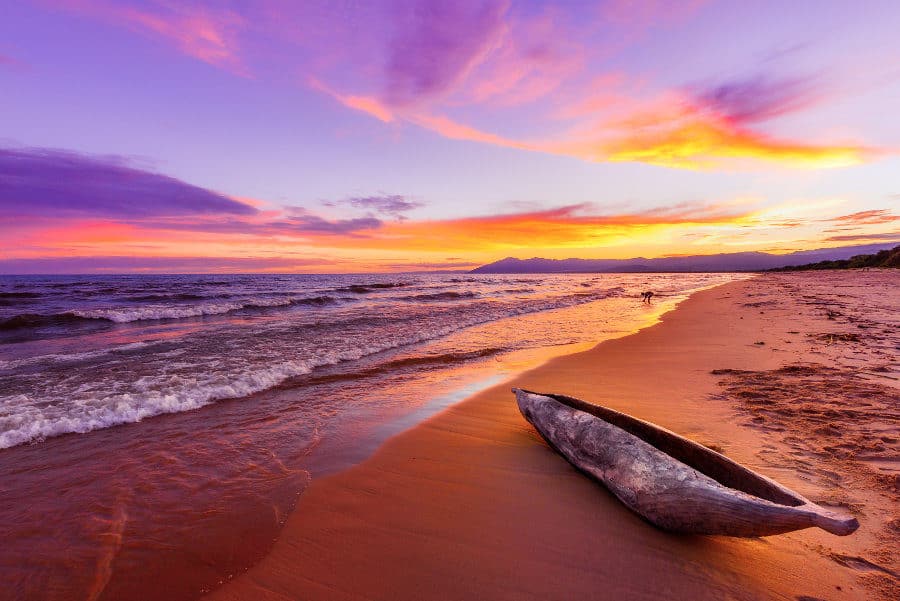
Serene and seductive, Lake Malawi epitomises a country . Tanzania and Mozambique share the lake’s shoreline, but there’s no doubt that this lake has a Malawian atmosphere.
This stunning expanse of water extends beyond the horizon. Gaze across its glassy surface and you may quickly be lulled to sleep.
Lake Malawi is on Malawi time – slow, slow, slower than you may ever have experienced before. And that’s why it is such a wonderful destination to visit.
Here’s a guide to laying back and soaking up all the tranquility.
What and where is Lake Malawi?
Although it only ranks third in size on the list of African lakes , Lake Malawi is the number one to visit.
It’s the watery divide between East and Southern Africa. The northern end is in Tanzania, the east in Mozambique, and all the fun and downtime in Malawi.
Soaking up the laid-back Lake Malawi atmosphere
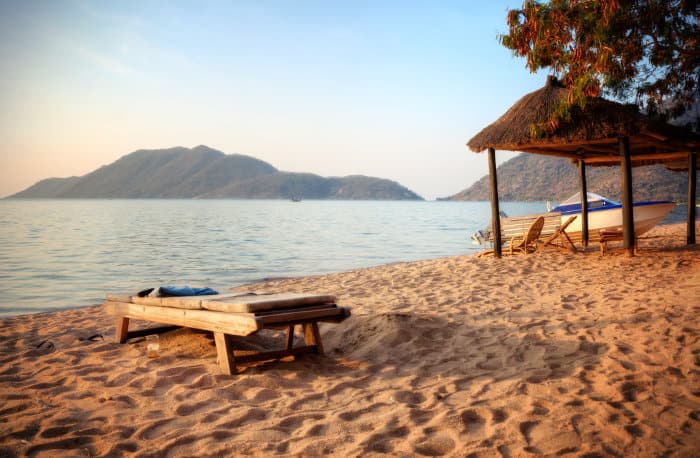
Villages along the lake are languid, a never-ending lullaby created by wooden shacks and tropical vegetation.
There are a couple of towns as well, but these have none of the bustle you will find at port towns on Lake Victoria and Lake Tanganyika. Nkhata Bay is one and it only has one supermarket.
Don’t visit Lake Malawi expecting many things to do. You can swim in the clear water, perhaps go snorkelling , or maybe rent a kayak for the afternoon.
Mostly you’ll be kicking back in a hammock, or on a wooden hut balcony, admiring how the water’s colour changes as the sun crosses the sky.
All along the lakeshore you’ll find pebble and sand beaches , golden stretches where you can lay out and take a break from everything.
Serenity reigns and you rarely get hassled. Lake Malawi is even too laid-back for beach sellers. Plus, the Malawian people are probably the friendliest and most warm-hearted of all on the continent.
Their warm lakeside smiles are a dream. And while the country is economically poor, it is incredibly rich in culture and togetherness.
This is where you go in Africa and do nothing . And while that can’t compete with the drama of an African safari, Lake Malawi has perfected the atmosphere for doing nothing at all.
How to Visit Lake Malawi
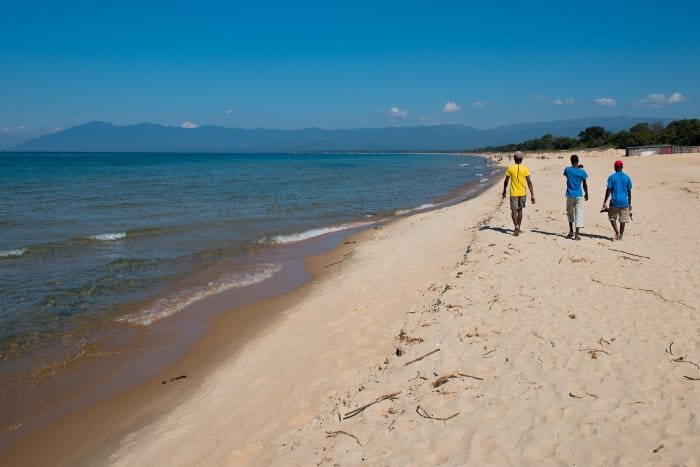
Not many people will fly halfway across the world to relax next to a lake. Unfortunately, you can’t really fly to Lake Malawi anyway.
Of all the countries in East and Southern Africa, Malawi is the poorest yet the most expensive to fly to. There is not a single direct flight here from the United States or Europe. The best options are connections via South Africa or Kenya.
However, Malawi is the ultimate overland stop . Traveling Africa overland is incredible but also tiring. Think long distances, dusty roads and too much excitement.
And then there is this lake. Finally, chance to lay back and do nothing , chance to forget about the road and re-energise. No hassle, no stress, nothing to do but improve your sun tan.
Whether you travel in your own vehicle, on an organised tour, or by public transport, Malawi is the most memorable destination of any long overland trip. Pristine Lake Malawi ensures you are completely relaxed , so you can fully enjoy all the attractions in neighbouring countries.
Getting around Lake Malawi
Malawi’s main north to south road runs parallel to the lake. So getting around is rarely a challenge . It’s just slow.
Note that buses in Malawi usually only leave when all the standing room is taken. Then after setting off they stop and pick up more people. But what do you prefer? Taking a busy bus to an empty beach? Or an empty bus to a busy beach?
Also note that there are very few gas stations in Malawi. Fuel is a premium product and often difficult to find. If you are driving, stock up and stay stocked up as best you can.
Lake Malawi Destination Guide
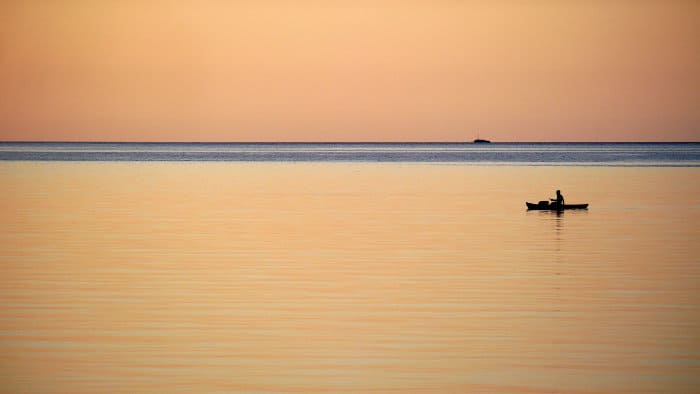
It’s 700 metres deep and close to 600 km long. Small overland camps are dotted along the lakeshore, idyllic places to rest either side of all the driving. Many of the best places to stay are hidden away, in secluded coves or along the lake’s golden beaches.
These lodges and overland camps are in wilderness settings , far from any towns. There may be a village nearby, but these beach retreats can be as cut off as any safari in the Serengeti.
Small towns and blossoming destinations also dot the lake. These are easier to reach for independent travellers using public transport. They are also a little livelier – better if you want to meet other travellers and share the lakeside beauty.
Note that relaxing on the lake with a beer isn’t necessarily the nicest thing. Carlsberg somehow won a 50-year contract to be Malawi’s exclusive brewery. Nobody else is allowed to make beer but them!
Most locals consume a different product, the locally grown and highly abundant Malawi gold . Just note that despite how much you smell and see it, this marijuana is illegal. Get caught in possession and expect to pay a bribe equal to whatever money is in your pocket.
Cape Maclear on the southern shore
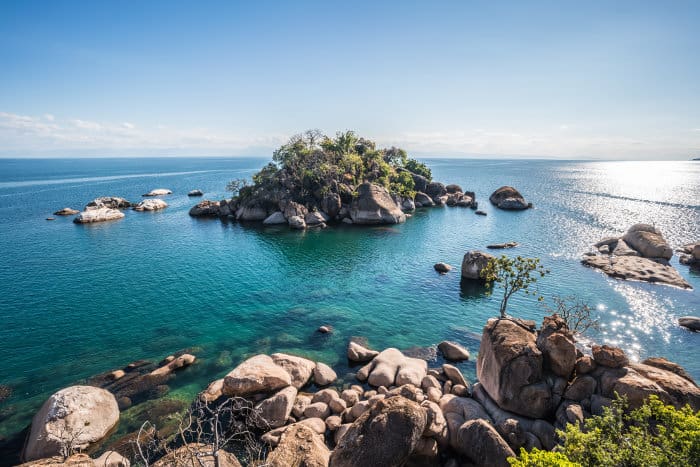
A lazy backpacker hub on the lake’s southern end, Cape Maclear has a handful of small lodges and a peaceful atmosphere, along with the odd small party.
All the lodges are located on the same strip of water, so it gets a livelier backpacker atmosphere than anywhere else on Lake Malawi.
Senga Bay in the southwest
The popular choice of African travellers and the largest lakeside town , Senga Bay has a choice of upmarket accommodation and easy access from capital city Lilongwe.
It’s a good choice if you want to combine lazy days with the ambiance of a traditional market town.
Beautiful Nkhata Bay
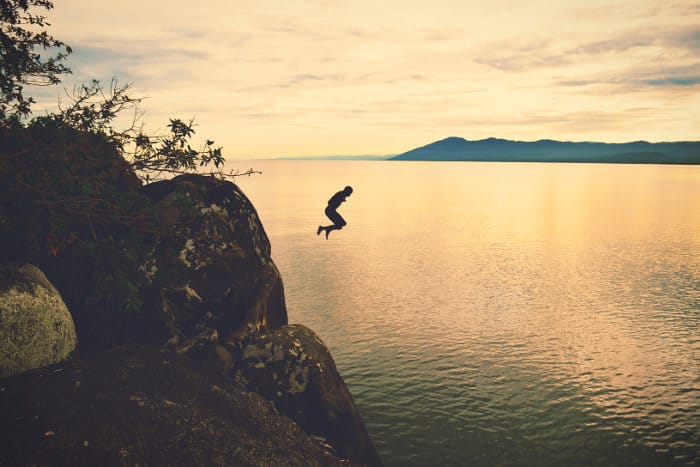
Spread out along green cliffs in a large bay, Nkhata Bay is a place you visit for two days and stay for two weeks .
You can experience tradition in the town, then escape to some of the excellent lodges along the lakeshore.
All the good accommodation is tucked away but still easy reach to the town. So you can soak up the beauty and privacy, and still have a Malawian experience.
The best place to stay here is Butterfly Space , a non-profit eco lodge that has supported hundreds of children through training and development. Stay here and you relax, while helping the community.
Beyond the lake
Lake Malawi is unlikely to be your only destination in Africa. Check out the safari guides to neighbouring Tanzania and Zambia . And remember, it’s still connecting with your wild side even when you’re lounging by a lake doing nothing.

About The Author
Editorial Team
Related posts.
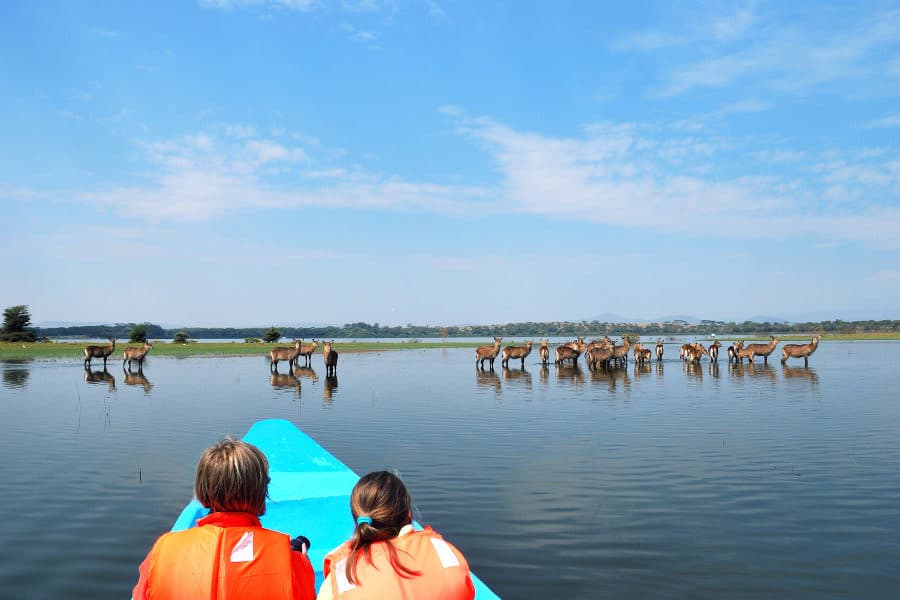
Lake Naivasha – One of Africa’s best-kept secrets
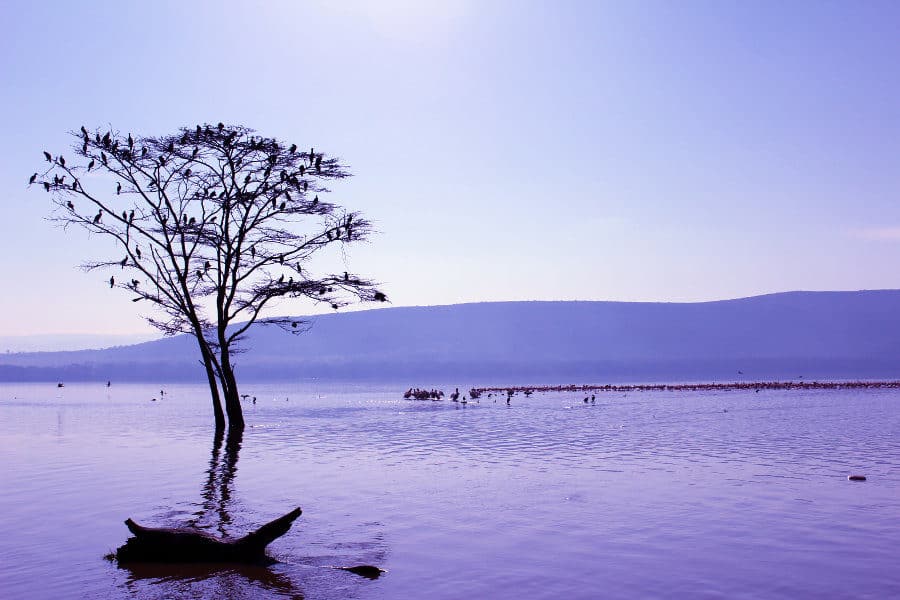
Lake Nakuru safari guide
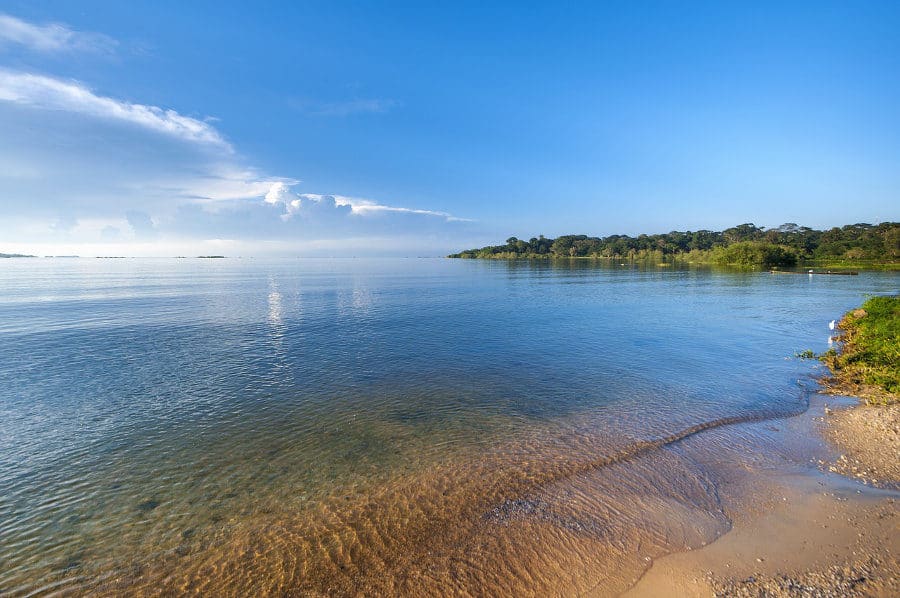
Lake Victoria – The greatest of African Great Lakes
Leave a comment cancel reply.
Your email address will not be published. Required fields are marked *
safari experts, since 1991
Book a call with a safari expert
Lake Malawi
Enquire now
Trust us to find you the rarest animals, the most spectacular wildlife events, the remotest landscapes and deeply meaningful cultural encounters!
Lake Malawi is an African Great Lake – the southernmost lake in the East African Rift system and a popular inland beach destination as a finale to top off that exhilarating wildlife safari.
The water is usually exceptionally clear for a freshwater lake, with visibility extending further than 30m. Beneath the warm cerulean waves, Lake Malawi’s ancient but turbulent geographic history has created truly spectacular underwater scenery decorated by electric flashes of vibrant fish.
Measuring 570km in length and some 75km at its widest point and 700m at its deepest, Lake Malawi is the fifth-largest freshwater lake in the world (by volume), and the third-largest in Africa (behind Lake Victoria and Lake Tanganyika).
READ MORE about Lake Malawi

Why choose us to craft your safari?
Handcrafted experiential safaris since 1991 .
Travel in Africa is about knowing when and where to go, and with whom. A few weeks too early/late or a few kilometres off course, and you could miss the greatest show on Earth. And wouldn’t that be a pity?

Trust & Safety
Client safari payments remain in a third-party TRUST ACCOUNT until they return from safari - protecting them in the unlikely event of a financial setback on our part.
See what travellers say about us
Make a difference
We donate a portion of the revenue from every safari sold to carefully selected conservation projects that make a significant difference at ground level.
YOUR safari choice does make a difference - thank you!
Take advantage of the search to browse through the World Heritage Centre information.
Share on social media
Unesco social media, lake malawi national park.
- Description
Located at the southern end of the great expanse of Lake Malawi, with its deep, clear waters and mountain backdrop, the national park is home to many hundreds of fish species, nearly all endemic. Its importance for the study of evolution is comparable to that of the finches of the Galapagos Islands.
Description is available under license CC-BY-SA IGO 3.0
Parc national du lac Malawi
Situé au sud de l'immense lac Malawi, aux eaux claires et profondes et à l'arrière-plan de montagnes, le parc abrite plusieurs centaines d'espèces de poissons, presque toutes endémiques, qui présentent pour la théorie de l'évolution un intérêt comparable à celui des pinsons des îles Galapagos.
الروضة الوطنيّة على نهر ملاوي
تقع الروضة في جنوب نهر الملاوي الكبير الذي يتّسم بالمياه الصافية والعميقة والذي تحدّه الجبال. وتأوي المئات من أنواع السمك وكلها تقريبًا مستوطنة، ما يعطيها أهميّة لدراسة التّطور توازي أهميّة طيور البرقش في جزر غالاباغوس.
source: UNESCO/CPE Description is available under license CC-BY-SA IGO 3.0
马拉维湖国家公园位于宽阔的马拉维湖最南端,湖水清澈深邃,背后群山相伴。马拉维湖国家公园保护着上百种当地的特有鱼类,其对于进化研究的重要性可与厄瓜多尔西部的加拉帕哥斯群岛上的雀类相提并论。
Parque Nacional del Lago Malawi
Situado en un paisaje con trasfondo de montañas, este parque abarca el extremo sur del vasto lago Malawi, que alberga en sus aguas claras y profundas centenares de especies de peces, casi todas endémicas, cuyo interés para la teoría de la evolución es comparable al de los pinzones de las Islas Galápagos.
source: NFUAJ
Nationaal park Malawi meer
Het Nationaal park Malawi meer ligt aan de zuidkant van het grote uitspansel van het meer van Malawi, met zijn diepe, heldere water en bergen op de achtergrond. Het nationale park is de thuisbasis van honderden vissoorten, bijna allemaal inheems. Het belang van deze vissen voor de bestudering van de evolutie is vergelijkbaar met de belangrijke rol van vinken op de Galápagos Eilanden. Het park is 94,1 vierkante kilometer groot, waarvan 7 vierkante kilometer bestaat uit wateroppervlak. Dit is voldoende om de waterpartijen en processen te beschermen die van belang zijn voor het behoud van de rijke biodiversiteit van het meer.
Source: unesco.nl

Outstanding Universal Value
Brief synthesis
Located at the southern end of the great expanse of Lake Malawi, the property is of global importance for biodiversity conservation due particularly to its fish diversity. Lying within the Western Rift Valley, Lake Malawi is one of the deepest lakes in the world. The property is an area of exceptional natural beauty with the rugged landscapes around it contrasting with the remarkably clear waters of the lake. The property is home to many hundreds of cichlid fish, nearly all of which are endemic to Lake Malawi, and are known locally as "mbuna". The mbuna fishes display a significant example of biological evolution. Due to the isolation of Lake Malawi from other water bodies, its fish have developed impressive adaptive radiation and speciation, and are an outstanding example of the ecological processes.
Criterion (vii): The property is an area of exceptional natural beauty with its islands and clear waters set against the background of the Great African Rift Valley escarpment. Habitat types vary from rocky shorelines to sandy beaches and from wooded hillsides to swamps and lagoons. Granitic hills rise steeply from lakeshore and there are a number of sandy bays.
Criterion (ix): The property is an outstanding example of biological evolution. Adaptive radiation and speciation are particularly noteworthy in the small brightly coloured rocky-shore tilapiine cichlids (rockfish), known locally as mbuna. All but five of over 350 species of mbuna are endemic to Lake Malawi and represented in the park. Lake Malawi's cichlids are considered of equal value to science as the finches of the Galapagos Islands remarked on by Charles Darwin or the honeycreepers of Hawaii.
Criterion (x): Lake Malawi is globally important for biodiversity conservation due to its outstanding diversity of its fresh water fishes. The property is considered to be a separate bio-geographical province with estimates of up to c.1000 species of fish half occurring within the property: estimated as the largest number of fish species of any lake in the world. Endemism is very high: of particular significance are the cichlid fish, of which all but 5 of over 350 species are endemic. The lake contains 30% of all known cichlids species in the world. The property is also rich in other fauna including mammals, birds and reptiles.
The property is sufficiently large (94.1 km 2 of which 7km 2 is aquatic zone) to adequately represent the water features and processes that are of importance for long term conservation of the lake's rich biodiversity and exceptional natural beauty. The water area within the national park protects the most important elements of the lake's biodiversity. It also protects all major underwater vegetation types and important breeding sites for the cichlids. Many other fish species of Lake Malawi are however unprotected due to the limited size of the park in relation to the overall area of the lake. Thus, at the time of inscription the World Heritage Committee recommended that the area of the national park be extended. The property's long term integrity largely depends on the overall conservation and management of the lake which falls under the jurisdiction of three sovereign states i.e. Malawi, Tanzania and Mozambique.
Protection and management requirements
Lake Malawi National Park is protected under national legislation and the resources of the park are managed and controlled by the Department of National Parks and Wildlife.
The park has a management plan and, there is also a strategic tourism management plan for Malawi which describes the tourism development for the site. Utilisation of park resources is restricted to curb the illegal harvesting of resources. There are five villages included within enclaves inside the property. The local population is dependent on fishing for a livelihood as the soil is poor and crop failure frequency is high. Whilst the property's terrestrial and underwater habitats are still in good condition, management planning needs to deal more effectively with the threats of rapid growth of human population and the impacts of firewood collection, fish poaching and crowded fish landing sites. Thus a key management priority is the maintenance of the lake ecosystem while taking into consideration the needs of the local community through collaborative management programmes. The implementation of the Wildlife Policy that mandates park management to work in collaboration with local communities within and outside park boundaries and share responsibilities and benefits accruing from the management of the park is important to enable effective management to be implemented. Potential threats from introduced fish species which could displace endemics, pollution from boats and siltation from the denuded hills, need to be minimised and require close monitoring. Collaboration with the governments of Tanzania and Mozambique needs to be maintained and strengthened for the long term protection and management of the entire lake ecosystem, and consideration of the potential for its extension is required.
- Protectedplanet.net

The Nomination files produced by the States Parties are published by the World Heritage Centre at its website and/or in working documents in order to ensure transparency, access to information and to facilitate the preparations of comparative analysis by other nominating States Parties.
The sole responsibility for the content of each Nomination file lies with the State Party concerned. The publication of the Nomination file, including the maps and names, does not imply the expression of any opinion whatsoever of the World Heritage Committee or of the Secretariat of UNESCO concerning the history or legal status of any country, territory, city or area or of its boundaries.
State of Conservation (SOC)
You are using an outdated browser. Please upgrade your browser to improve your experience.
See Our Most Popular Chile Holidays Here
Top things to do on lake malawi.
From scuba diving to kayaking, Lake Malawi has something for everyone.
24 Jun 2022
27 jun 2022.
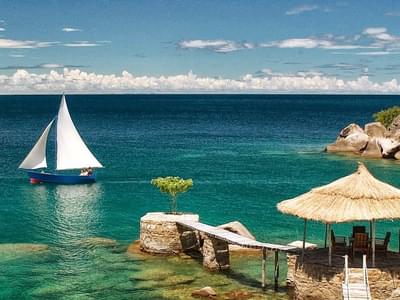
Nestled between the borders of Tanzania, Mozambique and Malawi , you can find a unique beach paradise - natural and unspoiled - called Lake Malawi.
This freshwater lake is the ninth-largest in the world by volume, and not only boasts extraordinary beauty but is also an incredibly important area of biodiversity. There are countless things to see and do across the 29,600 km² area of Lake Malawi that are ideal for all types of travellers, and we’re going to list just a few of our favourites:

1. Snorkelling and Scuba Diving
Kicking off our list of top things to do on Lake Malawi, make sure to pay a visit to our finned friends by jumping into the clear, blue waters, and donning a mask and snorkel to discover the delights of the underwater world. The population of the many hundreds of endemic fish species in these waters is comparable to the importance of the finches of the Galapagos Islands, in Darwin’s Theory of Evolution.
The endemic fish that are so ecologically notable, are the Malawi Cichlids, and they can be found in any aquarium around the world because of their vibrant and luminescent beauty. Incredibly, there are at least 700 species of cichlids in Lake Malawi. These pretty little things like to flutter in and out of the rocks in the shallow parts of the lake and are not shy to swim right up into your face to get a good look at you.

If you’re up for digging a little deeper, there are a few PADI-certified scuba spots around the lake, such as Mumbo Island Lodge in the south, Blue Zebra Island Lodge just off the central coastline, and Kaya Mawa on Likoma Island way up north. Read more about scuba diving on Lake Malawi HERE.
2. Kayaking and boat trips
One of the delights of Lake Malawi is the number of protected bays and uninhabited islands. Drag a kayak into the warm waters and gently paddle your way up the bay or around the islands.
Explore the little coves and unique wildlife that have made their home here, from the African Fish Eagles perched way up high in the trees, scanning the deep blue for their next meal; to the scaly monitor lizards basking on the iconic pale boulders that dot the Malawi coastlines; and way down to the slippery little otters who dance and play in the water, popping their heads out to see who’s come to visit.
Of course, a sunset boat cruise is not to be missed, and the sunsets here are as spectacular as they could possibly get, with hues of red, orange and gold dancing off the sparkling blue waters of the ‘Lake of Stars’.

3. Hiking the coastal mountains and islands
Not much else kicks off a day with a bang like a morning hike. Earn those juicy cocktails and three course meals by setting off on foot to explore the natural world around the lake and get the body moving. Walk on the palm-fringed beaches, take an easy ramble around the island or limber up for a mountain hike to reach that epic viewpoint.
Most lodges will have guides that can take you on mapped-out routes near the lodge, and who will educate you on the things you see along the way: flowers, trees and other plants; insects, wildlife, the bees and the birds...

Malawi as a country boasts fantastic birdlife; throughout the national parks and along the lakeshore you are sure to be dazzled by the feathery fellows. For those passionate twitchers, the lake birds that might get your motor going include the Trumpeter Hornbill, Böhms Bee-Eater, Pel’s Fishing Owl, Narina Trogon, and the motherlode: the African Pitta, which have been coming to nest on Blue Zebra Island every November through March for the past 3 years.
4. Visit the local villages
You may have heard of Malawi by another name, the ‘Warm Heart of Africa’. It is so named because of the warm and gentle people that call her home, and it is considered one of the safest and friendliest places for travel in Africa. We feel that to know a country, you have to know her people, and what better place to do that than here?
Why not spend a morning or afternoon and take a wander into the nearby village; grab some ‘mandasi’ (local doughnuts), or ‘chimanga’ (charred corn) from a food stall, and buy some crafts. Malawi is full of talented artists and you’ll find an array of beautiful wood carvings, jewellery, paintings and clothing. Maybe join the crowd to sit and watch the football – Manchester United and Arsenal games will always be showing somewhere, drawing in fans from around the village and plenty of cheer! Take a moment to chat to the kids who will take great interest in you, they love to practice their English and love seeing photos of themselves - just remember to ask first before taking their picture.

5. Feed the fish eagles
In the southern lakeshore bay of Cape Maclear, you can hire a local boatman to take you out on a cruise to visit Otter’s Rock, and/or to an island to feed the fish eagles. They will source some small fish from a local fisherman and you’ll set off for the nearby, uninhabited island of Thumbi.
The African Fish Eagles are impressive birds - a full-grown adult female will reach a height of around 77cm and a wingspan of up to 2.4m. They have outstanding eyesight, said to be 5 times more powerful than a human’s, helping them to spot small fish in the water from great distances. They can also carry prey up to 10 times their own weight and despite what their name implies, also prey on other birds, monkeys and baby crocodiles!
Drifting near one of these grand creatures high up in the island’s canopy, grab a fish and simply throw it up into the air and into the lake. The eagles will swoop down right in front of the boat to scoop their treat from the water in their giant talons, the quick ones can even catch it in mid-air. A fantastic photo op and a great chance to get an up-close look at these amazing birds.

6. Watersports galore
Many lodges across the lake will offer some form of watersport, whether it’s a gentle paddle on a SUP board or you’re tearing around the bay on a wake-board; but some lodges, like Pumulani and Kaya Mawa will offer the full shebang!
Across Lake Malawi, you will have the opportunity to water-ski, wake-board, paddleboard, snorkel, scuba dive, kayak, sail, fun-tube and fish, plus land-based activities such as mountain biking, e-cycling, nature walks and spa treatments. Treat yourself to a massage overlooking the water after a long day of activities!
Our Majete Safari and Lake Malawi adventure is 9 days from £4,285pp including flights and stays at Pumulani on Lake Malawi.
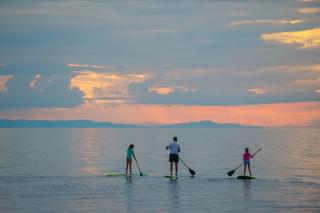
7. Horse-riding on Kande Beach
Regardless of whether you’re a world class jockey, or the closest thing you’ve been to a horse is your next-door-neighbour’s Great Dane, there are no skill levels required up at Matamba Equestrian. Along the northern lakeshores you’ll find a small family-run stables and farmhouse nestled in the forest just back from the white sandy shores of Kande Beach. Book yourself in for a forest and beach ride (and some training if need be); you will be fitted with all the gear and will be paired up with your four-legged buddy for the day.
Along with your guide, you can set the pace as you make your way one by one over the well-trodden trails of forest and farmland before the grand finale… ending on the shores of Lake Malawi, your horse trailing through the fine white sand found only on the northern shores. Hop off the back of your tired friend and take off the saddle before jumping back on, bareback, and heading for the water. These horses love a drink and refreshing swim after a long walk as much as we do, so just let it do its thing as it plunges into the surf to submerge itself, taking off into a gentle paddle. Just hold on tight and enjoy this unique and incredible experience of being atop a weightless horse in Lake Malawi!
Stay at Chintheche Inn which is under an hour away to enjoy a riding along the shores of Lake Malawi.

8. Digital detox
While most of Malawi enjoys good cell network service, there are some areas that are just not on the radar, like Mumbo Island Lodge . While this may be a deal-breaker for some, it’s a God-send for others, and we definitely count ourselves in the latter category. Pack that phone away under the dirty undies in the bottom of your bag, pull out that dog-eared book you’ve been ignoring, and… relax.
Take this opportunity to really take a breath and be present, like, really present. No bulky phone poking out of your pocket, no “ did you receive my email? ”, no screen-time headaches, no WhatsApp groups, no phantom vibrations in your pocket, no selfies, no ‘Candy Crush’, no “ I’ll Google it ”… Instead, wake up late or wake up for sunrise, walk in the sand, have a conversation, a discussion that no one knows the answer to, marvel at the birds and the rainbow-coloured lizards, swim in the warmest waters, have a gin & tonic (or two), walk in the forests, take in the views, listen to the fish eagle’s call, revel in the company you have around you, or embrace the splendour of solitude.

The landscape, colours and faces of Lake Malawi will cling to your heart for many years after your visit. It’s a slow pace of life on these shores, remember to enjoy it and let time flow as it may. While these are just a few of the things that you can do on Lake Malawi, the options are endless and we know just where to find them.

Plan with an expert
Have a look at our original holiday experiences and then contact us with your brief, or call 01768 603 715
A tailor-made itinerary just for you
Our experts will send you a detailed holiday itinerary specified to your desires. It's our service promise to you.
Value guarantee
Tailor-made doesn't mean expensive! Ask about our price promise and book with financial security.
Thank you for making an enquiry
Our travel experts will be in touch soon. Feel free to call us on 01768 603 715.
Start planning your next holiday
Give us a call on 01768 603 715 or fill in the form below and we’ll be in touch.
Tell us about you...
Tell us about your trip….
Please enter your comments.
Lake Malawi National Park
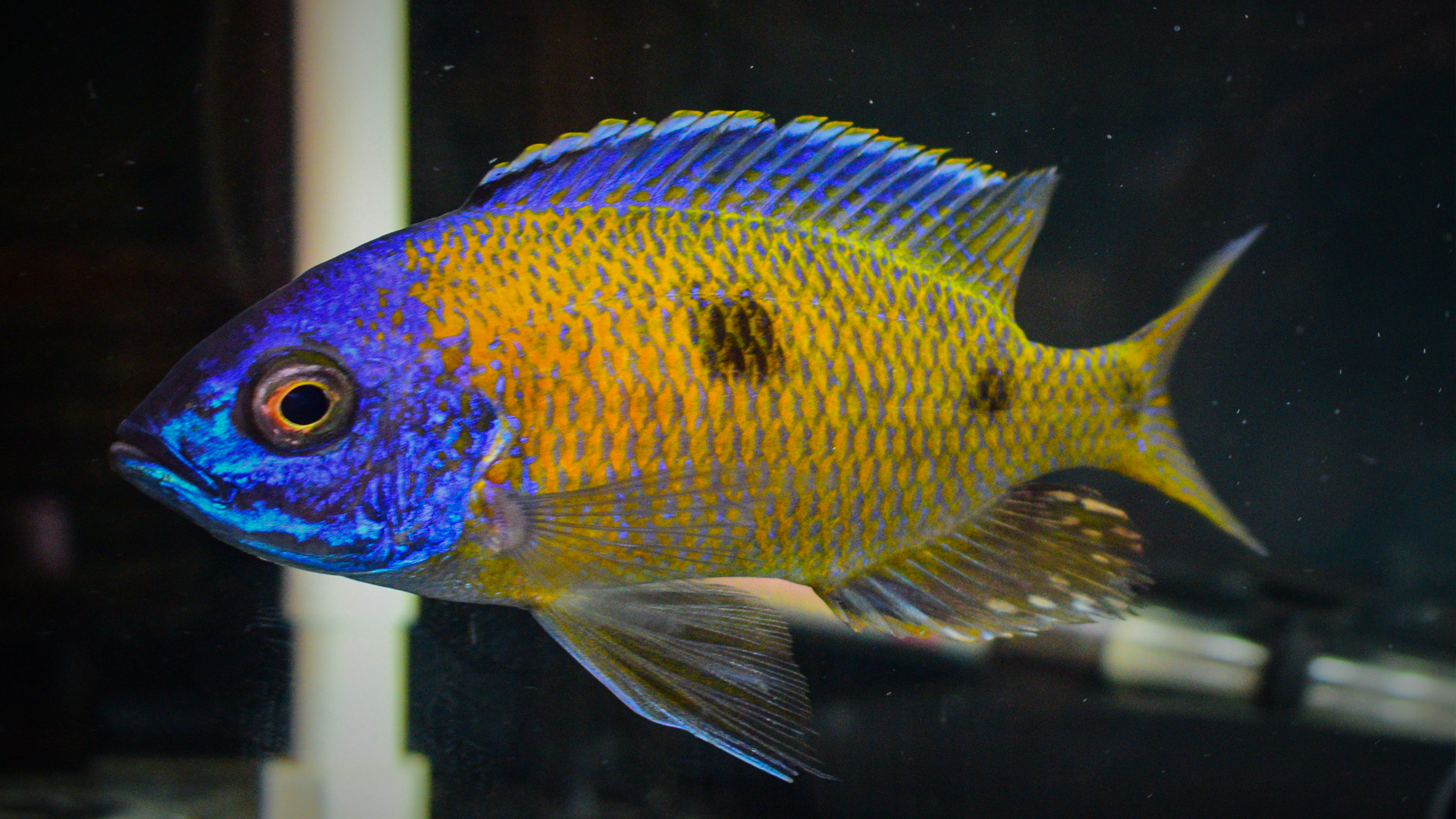
The Lake Malawi National Park is the world’s first freshwater national park and a World Heritage Site, found at Cape Maclear at the southern end of Lake Malawi. Declared a World Heritage Site by UNESCO in 1984.
Electric-Yellow-Cichlid
The park includes a land area around the cape and Chembe fishing village. Snorkelling or diving around the rocks off the island takes one into a silent world of kaleidoscopic colours provided the various forms of life there.
The countless thousands of freshwater fish, the mbuna , are more abundant and varied here than anywhere else in the world. Boats are available for hire and the fish will feed directly from the hand. Water birds, including fish eagle, hamerkops and white-breasted cormorant are common in the park. Over a hundred species have been recorded. Most commonly seen large mammals in the park are baboon, velvet monkey, and both the Cape clawless and spotted-necked otters.
Red-Empress Cichlid
Excellent up-market accommodation options are available that combine accommodation with lake activities. Mumbo Island and Domwe Island camps offer idyllic island getaways just off shore. Others mid- market options include; Mgoza lodge , Cape Mac lodge and The Warm Heart Adventure Lodge all right by the beach.
The Lake Malawi National Park also covers the Marelli Islands further north than Cape Maclear. Accessed via Salima/Senga Bay these exclusive islands are now home to the luxurious Blue Zebra Island Lodge.
The transparent waters of Lake Malawi are home to over 350 species of endemic Cichlid fish…Cichlid fish? Yes, present in almost every aquarium across the world. In a variety of colours and sizes, these make for excellent snorkelling sightings! There is also abundant birdlife from the darting cormorant to the regal fish eagle and of course the famously large nested hammerkop for birders this is an aquatic bird paradise. Not to forget, as it is freshwater we have 2 species of otter here which are regularly sighted along the shoreline and even on some of the islands.
The lakes surrounding offers stunning scenery of rocky mountains plunging into the crystal clear water. Sunsets are one of a kind, and the nights provide the Lake its nickname of “lake of stars” as you can see hundreds of little lights coming from the fishermen boats.
Things to do
Scuba diving: The lake is a popular destination for scuba diving with people visiting especially to dive. Many resorts along the lakeshore offer scuba diving at very good prices. Some even offer night dives, which is extremely popular as all the nocturnal creatures come out to play.
Water sports: Different lodges offer varying water sports activities, some will offer motorized sports, such as wakeboarding and tubing, most will offer non-motorized activities such as kayaking.
Hiking: There are a few hiking trails around the national park. Each one offers fantastic and rewarding views. The difficulty isn’t particularly hard but be sure to take plenty of water.
Snorkelling: A dive is great and you can see some incredibly unique fish however if you don’t have your PADI don’t fear! Thanks to the beautifully clear waters you can see a whole lot by just putting on a snorkel mask. Ask us or your lodge for top snorkel spots.
Kayaking: Why not grab a picnic and a kayak and head off to explore the islands around the shore of Malawi? Explore the coastline of Lake Malawi, you are likely to spot a whole lot of aquatic birds, see the Fish eagle fishing and if you are lucky you may spot an otter or two.
Who the park is for
Passionate about fish, birds or diving? Lake Malawi will be your paradise! If you love to kayak, dive or even just swim Lake Malawi National Park is the right destination for you.
Park entry fees
Non-resident foreigner: USD10/person/day. Resident foreigner: USD7/person/day Malawi citizen: MWK450/person/day. All below age of 12 years: nil
- July 6, 2019
- Uncategorized
Add Comment Cancel reply
Your email is safe with us.
Save my name, email, and website in this browser for the next time I comment.

- Adventure (6)
- Camping (1)
- Interviews (1)
- Lifestyle (1)
- Outdoor (1)
- Uncategorized (29)
Popular Posts :
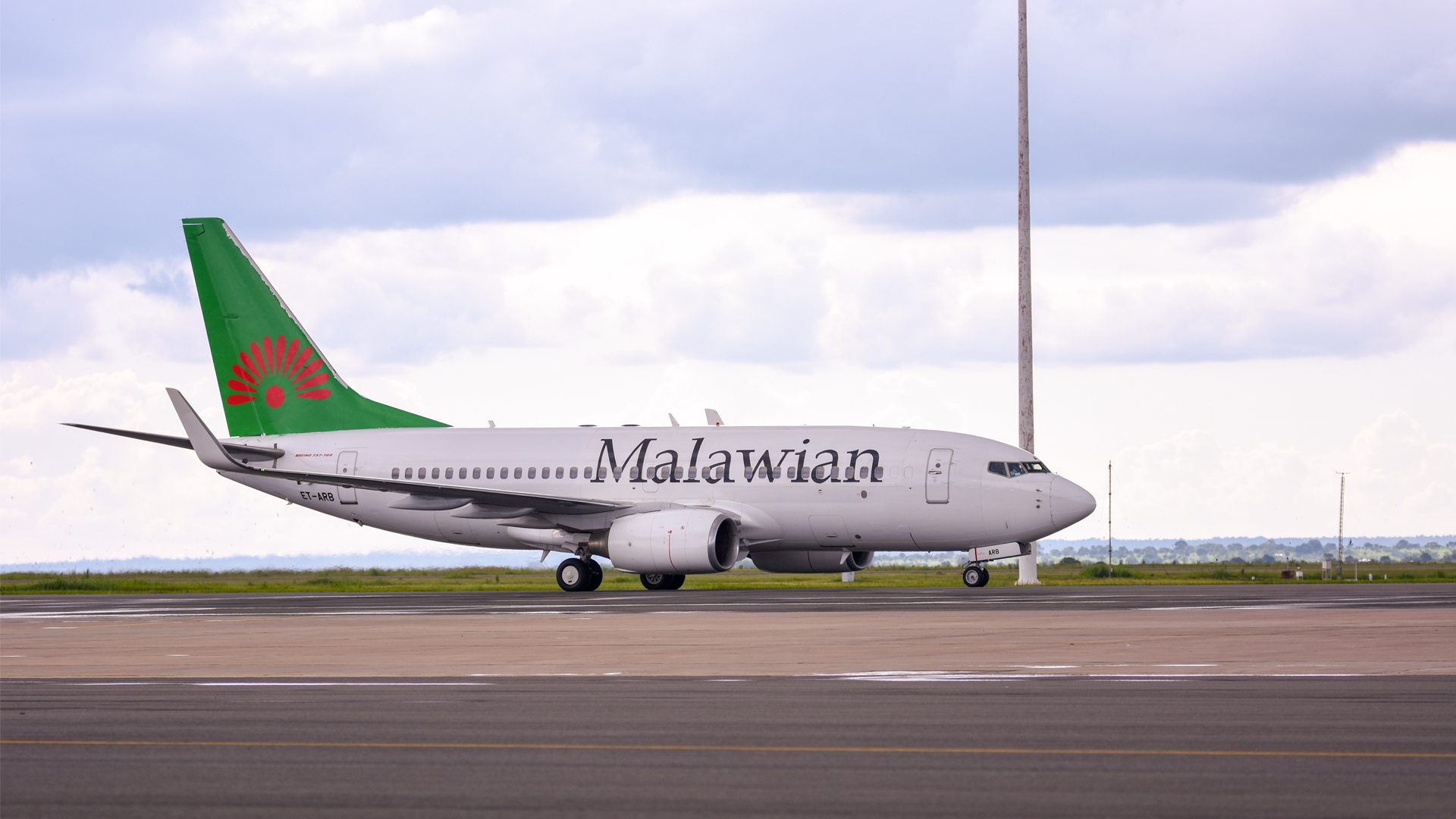
Our Instagram :

Lake Malawi National Park
Much of the area around Cape Maclear, including several offshore islands, is part of Lake Malawi National Park, one of Africa's few freshwater aquatic parks and a Unesco World Heritage Site. When organising activities on the lake, check if prices include the park entrance fee.
Visit whc.unesco.org/en/list/289 for more information on the park's importance for the study of evolution.
Suggest an edit to this attraction
Lonely Planet's must-see attractions

Chamare Museum
If you only visit one thing here, make it the Chamare Museum, beautifully decorated with murals depicting scenes from Malawian history. The first room…

Kungoni Centre of Culture & Art
Part of the Mua Mission, this fascinating cultural centre is made up of several exhibitions, workshops and even a botanic garden. Set up in 1976 by a…

Mua Mission Church
28.43 MILES
Ask at the Kungoni Centre of Culture & Art for the key to this brick building dating to 1907. The exterior has carved wooden doors and painted panels…

Fishing Village
24.83 MILES
Life in Senga Bay revolves around the sea, and there's always something happening on the beach. Go early in the morning to see the boats coming in from…

Kungoni Art Gallery
Showcases woodcarvings and other artwork, such as painting and embroidery. Proceeds from sales go to the local artists behind the artworks; their…

Stuart M Grant Tropical Fish Farm
22.69 MILES
About 10km south of Senga Bay is Stuart Grant’s tropical fish farm, which breeds and exports cichlids. If you’re interested you can do a half-hour tour of…

Carving Workshop
28.39 MILES
You can watch talented artists carving exquisite sculptures at this workshop, which doubles as a centre where experienced carvers train new recruits.

Missionary Graves
Just before the Lake Malawi National Park gate is a sign pointing to a path, which leads towards the hills overlooking the bay. A few hundred metres up is…
Nearby Malawi attractions
1 . Missionary Graves
2 . Museum and Aquarium
At the Lake Malawi National Park headquarters, inside the park gate, the visitor centre doubles as a small museum and sickly aquarium. The museum charts…
3 . Mwala Wa Mphini
This huge rock, crisscrossed with eroded grooves resembling tribal facial scars, is signposted from the main road. You can walk the 4km to this National…
4 . Stuart M Grant Tropical Fish Farm
5 . Fishing Village
6 . Carving Workshop
7 . Chamare Museum
8 . Kungoni Centre of Culture & Art

- Travel Guides
- Green Living

LAKE MALAWI: BEACHES & WHERE TO GO
Facts about lake malawi.
Lake Malawi is a veritable paradise. The pristine blue waters surrounded by golden sands eloquently tell the story of Lake Malawi and its beauty. Lake Malawi’s waters are known for their freshness, clearness, and vibrant fish species.
Lake Malawi is the ninth biggest lake in the world, in terms of surface area. It is the third-largest lake on the African continent (after Lake Victoria and Lake Tanganyika). The lakes area is 11,430 sq. miles (29,604 sq. km). Lake Malawi’s length is approximately 363 miles (584km), with its widest point measuring at 50 miles (80 km). The lake is approximately 706m deep (2,316 feet), making it the fourth deepest lake. More information on facts about Lake Malawi is here .
Lake Malawi (formerly known as Lake Nyasa) borders Malawi, Mozambique and Tanzania, but majority of its expanse lies within the confines of Malawi . The lake connects to Shire River, which runs through the southern region of Malawi.
The explorer, David Livingstone, is widely recognized as the individual responsible for introducing Lake Malawi to the world. Livingstone called it the “lake of stars” due to the mesmerizing sight of the fishermen’s lamps glowing like the stars in the sky.
The best way to explore Lake Malawi is to visit the beaches. So many engaging activities happen on the beach. Visitors are delighted to partake in beach soccer, beach volleyball, and water skiing. Moreover, boat excursions, snorkeling excursions, sand festivals, and scuba diving prove popular among many tourists.
The lake also boasts a breathtaking national park—home to the cichlid fish species. Recognized by UNESCO, Lake Malawi is home to a myriad species of cichlid fish.

WHERE IS LAKE MALAWI?
Lake Malawi, the third largest lake in Africa and the fifth largest freshwater lake globally, is situated in southeastern Africa. It encompasses about 7% of the world’s surface freshwater. The largest portion of Lake Malawi is located in Malawi, with Mozambique and Tanzania holding smaller sections.
In Malawi, Lake Malawi passes through different districts, cities, and towns. When I visit Lake Malawi I like to explore beyond the beaches—visiting local markets, visiting villages nearby, and eating local foods. Self-driving along the lake shore road is profoundly freeing and adventurous. The following are the areas covered by Lake Malawi in Malawi:
LAKE MALAWI IN MANGOCHI CITY
Mangochi is a township in the southern region of Malawi, located in the Mangochi District. Situated near the southern end of Lake Malawi, it is a well-known city and can be reached easily from both large cities of Blantyre and Lilongwe by car and bus. See the detailed post on Mangochi Malawi and its beaches and historical sites .
LAKE MALAWI IN MONKEY BAY
Monkey Bay, also in the Mangochi District, is a renowned town situated on the shores of Lake Malawi. It serves as one of the main ports providing access to the lake. The town’s sandy and rocky beaches of Cape Maclear Malawi as well as the famous Lake Malawi National Park make Monkey Bay a perfect exploration hub.
LAKE MALAWI IN NKHOTAKOTA
Nkhotakota is another port town on the shores of Lake Malawi. This city boasts beautiful beaches surrounded by traditional huts and a ferry dock. Notably, Nkhotakota holds historical significance as the location where the Scottish explorer, Dr. David Livingstone, encountered a slave trader named Jumbe in the late 19th century. This encounter took place under a large tree near Mosque Bay, giving rise to the name “Livingstone Tree” for the area.
LIKOMA ISLAND ON LAKE MALAWI
Likoma Island, situated on Lake Malawi, is home to a diverse range of mammals, birds, and plants. Its sandy beaches offer a serene and tranquil escape. Likoma is a town on the island and is home to the famous St. Peter’s Cathedral, constructed with stones in 1903. A statue of Saint Peter stands outside the cathedral, which is a prominent tourist attraction in Malawi. People go to Likoma to experience the pristine waters of Lake Malawi and the colorful fish harbored there.
CHIZUMULA ISLAND ON LAKE MALAWI
Chizumulu Island, smaller than Likoma Island, is located a few kilometers away from Mozambique and not far from Likoma Island. Visitors are drawn to Chizumulu for its beautiful beaches and secluded location.
LAKE MALAWI IN NKHATA BAY
On the western shores of Lake Malawi, there is a port town known as Nkhata Bay. The harbor is sheltered by forests and rocky headlands. One popular spot on the southern side of Nkhata Bay is Chikale Beach, renowned for its crystal-clear water and cichlid fish. The ferry port in Nkhata Bay serves as a departure point for Chizumulu Island and Likoma Island.
Close to Nkhata Bay in the northern region of Malawi, there is a settlement called Chintheche, situated on the shores of Lake Malawi and in close proximity to the main road.
LAKE MALAWI IN KARONGA
Karonga, located in the Northern Region of Malawi, was historically a center for the slave trade. Presently, the Karonga district is thriving and gaining traction as another good destination for Lake Malawi visitors. Chilumba, a town within Karonga, offers picturesque views of Lake Malawi.

IS IT SAFE TO SWIM IN LAKE MALAWI?
Cleanliness: The water is clean, and there are no oil spills, no drifting plants, and no driftwood in Lake Malawi. The clean and clear water present an opportunity to swim, snorkel, and dive.
Wildlife: Crocodiles are not widely present in Lake Malawi as they populate more in the Shire River. Hippos are usually around areas with vegetation, and they normally come out in the evening until the early hours of the morning. Then they retreat to their hiding places away from people. There are no sharks in Lake Malawi but plenty of colorful Lake Malawi fish—cichlids. This body of freshwater habors the most colorful cichlids and Chambo fish (that looks like Tilapia)—we can only hope that Lake Malawi is not polluted by waste matter brought on the beaches by visitors.
Waterborne diseases: When you visit Lake Malawi, pay attention to the local news TV channels as these will broadcast current affairs. If there was an outbreak of an infectious disease such as Cholera or anything parasitic such as Bilharzia, you will hear about it on the news. Also, talk to the hotel staff and tour guides about any concerns.
It is usually safe to swim in Lake Malawi. The lake is not dangerous, but be cautious and use your good judgement—like you would do when you visit any other body of water.

LAKE MALAWI HOTELS AND LODGES
Are you looking for the best places to stay around Lake Malawi? There are a few good recommendations. The good Lake Malawi resorts are pricey but offer very good customer service to guests. They also show interest in sustainable tourism and take steps to operate their businesses responsibly (environmentally) and engage positively with local communities.
Good hotels include Makokola Retreat (Club Makokola) and Sunbird Nkopola.
There is a cluster of hotels in Mangochi, Monkeybay (especially the Cape Maclear area), and Salima. All other areas situated on the north of Lake Malawi have more lodges than bigger hotels, as well as good accommodations listed on AirBnB.
You can book all these hotels via third-party websites such as Trip Advisor, Booking.com, and Air BnB. However, most hotels in Malawi take bookings via email, WhatsApp texting, and phone. If your desired hotel shows to be full on sites like Trip Advisor, go ahead and email them to see if they have available rooms—they usually do.
Cape Town South Africa Travel Guide
Victoria falls zimbabwe travel guide, livingstone zambia travel guide.
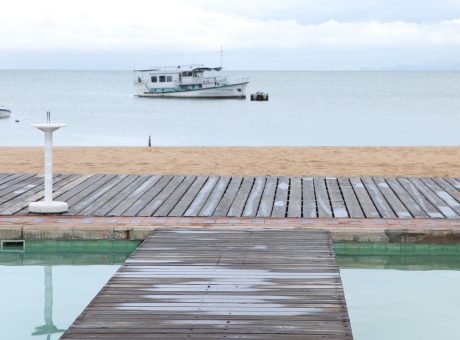
Mangochi, Malawi, Africa: A Guide to Mangochi Beaches on Lake Malawi & Other Places to Visit Around Mangochi
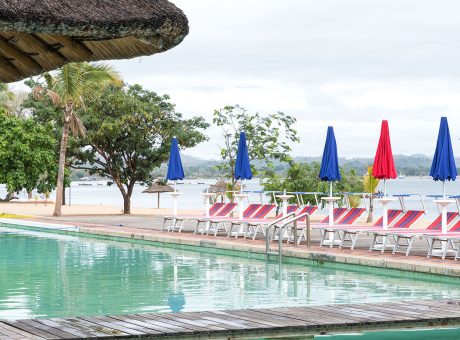
Club Makokola in Pictures: Lake Malawi’s Makokola Retreat, Mangochi, Malawi
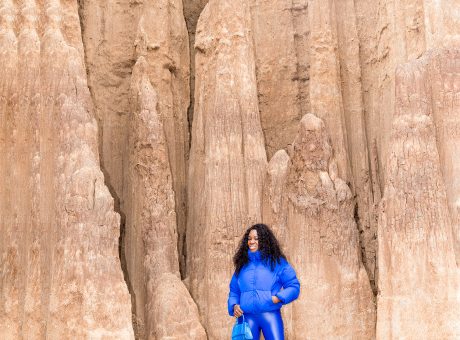
Malape PIllars, Machinga, Malawi and How to Get There
You cannot copy content of this page

- Login or Register
Lakes and Islands

Lake Malawi
Explore Lake Malawi, Africa’s third largest lake as well as the second-deepest in Africa and the ninth-largest in the world. It’s the Jewel in the Warm heart of Africa’s tourism crown with its cool, clear blue waters, paired with its golden sands. It’s the calendar lake as it is 365 miles in length from north to south and 52 miles wide. Occupying about 20 percent of the total surface area of Malawi, the lake covers an area of 29,600 sq km, most of which is located within the State of Malawi. Lake Malawi is also known as the lake of stars, as lights from the lanterns of fishermen on their boats can be seen, that resemble stars in the sky from a distance. Beautiful and astonishing golden beaches around Lake Malawi attract a lot of activities such as Snorkeling, Scuba diving, Beach soccer, Kayaking and Sailing, Boat trips, Water-skiing, Sailboarding, Beach volleyball, Stargazing, Sand festival and many more experiences to explore.
Lake Malawi has its own National Park, the Lake Malawi National Park. The park was created to protect the lake’s endemic fish species and is Malawi’s only UNESCO World Heritage Site. According to UNESCO Lake Malawi is no ordinary lake as it’s a home of an incredible diversity of life, with over 350 species of endemic cichlid fish.
Malawi has two islands located within Mozambican territorial waters. Likoma is the larger of the two and Chizumulu the smaller. Likoma is best known for St Peter’s Cathedral, one of the largest churches in Africa and one that appears too big for its tiny island location. Likoma island has beautiful gardens like the Ulisa Gardens where people visit to appreciate nature and also has beautiful art galleries of art craft and culture art gallery. We also have Chizumulo, Maleli island, Mumbo and Domwe among other islands found in Malawi.
- Registration
Our head office
0800 088 6002, [email protected], client log in, reset password, agent log in.

Lake Malawi: Exploring freshwater beaches in Lake Malawi National Park connecting Tanzania and Mozambique
Embark on an extraordinary journey of natural wonders as we delve into the allure of Lake Malawi, a pristine freshwater paradise nestled within the borders of Lake Malawi National Park. Renowned for its breathtaking beauty and ecological significance, this UNESCO World Heritage Site stands as a testament to the remarkable biodiversity that graces the heart of Africa. In the course of exploring the captivating freshwater beaches within Lake Malawi National Park, we uncover a harmonious blend of nature's marvels, seamlessly connecting the shores of Tanzania and Mozambique.
For those orchestrating their Tanzania tours , the inclusion of Lake Malawi promises an unparalleled experience, weaving together the splendor of this freshwater gem with the enchanting landscapes that define the essence of Tanzania's natural beauty. Join us on a virtual journey as we navigate through the wonders that await, immersing ourselves in the magic of Lake Malawi and the treasures it unfolds along the way.
What is the history of Lake Malawi?
Lake Malawi, also known as Lake Nyasa in Tanzania and Lago Niassa in Mozambique, is one of the African Great Lakes and the third-largest lake on the continent. It has a rich geological and human history.
Geological History: The lake is believed to have formed between one and two million years ago as a result of tectonic activity in the East African Rift system. This geological process caused the Earth's crust to thin and eventually led to the formation of the rift valley. As the crust stretched and thinned, blocks of land sank between the parallel faults, creating the depression that would eventually fill with water to form Lake Malawi.
Human History: The region around Lake Malawi has a long history of human habitation. Archaeological evidence suggests that humans have lived in the area for thousands of years. The lake's shores were inhabited by various Bantu-speaking peoples, and it played a significant role in the development of local societies.
Exploration and European Contact: The first European to reach Lake Malawi was the Portuguese explorer Caspar Boccaro in 1616. However, it was David Livingstone, the Scottish missionary and explorer, who brought significant attention to the lake in the mid-19th century. Livingstone reached Lake Malawi in 1859 and named it Lake Nyasa. His explorations and writings about the region drew the interest of European powers.
Colonial Period: In the late 19th century, European powers, particularly Britain and Germany, sought to establish control over the lake and its surrounding territories. The Scramble for Africa led to the partitioning of the region, with the British claiming the majority of the lake's western shore, which became the British Protectorate of Nyasaland (present-day Malawi). The eastern shore fell under German influence and later became part of Tanzania.
Independence and Modern Era: Nyasaland gained independence from British colonial rule in 1964 and became the Republic of Malawi, with Lake Malawi as a central feature of the country. The lake has played a crucial role in the economic and social development of the region, providing a source of water, fish, and transportation. Today, Lake Malawi is known for its biodiversity, including a diverse array of fish species, some of which are unique to the lake.
Despite its historical significance, Lake Malawi has also been a source of contention between Malawi and Tanzania due to a territorial dispute over the lake's boundaries and potential oil reserves beneath its waters. This ongoing dispute underscores the complex historical and geopolitical factors associated with the lake.
Is Lake Malawi the largest lake in the world?
No, Lake Malawi is not the largest lake in the world by surface area, but it is one of the African Great Lakes and holds significance as the third-largest lake on the continent. In terms of surface area, Lake Malawi ranks behind two other African Great Lakes: Lake Victoria and Lake Tanganyika.
Here's a brief comparison:
Lake Victoria:
- Lake Victoria is the largest lake in Africa and the second-largest freshwater lake in the world by surface area. It is shared by three East African countries: Tanzania, Uganda, and Kenya.
Lake Tanganyika:
- Lake Tanganyika is the second-largest lake in Africa and the second-deepest lake in the world. It is situated in the Great Rift Valley and is shared by four countries: Tanzania, Democratic Republic of the Congo, Burundi, and Zambia.
Lake Malawi:
- Lake Malawi, also known as Lake Nyasa in Tanzania and Lago Niassa in Mozambique, is the third-largest lake in Africa by surface area. It is located in the East African Rift and is primarily surrounded by Malawi, with portions of its shoreline extending into Tanzania and Mozambique.
While Lake Malawi is not the largest by surface area, it is notable for its biodiversity, clear waters, and the unique cichlid fish species that inhabit its depths. Each of these African Great Lakes has its own ecological importance and contributes to the region's natural diversity.
Where is Lake Malawi located?
Lake Malawi is located in southeastern Africa and is part of the East African Rift system. It is situated between Malawi, Tanzania, and Mozambique. The lake is elongated in shape and runs approximately north-south.
The majority of Lake Malawi's western shore belongs to Malawi, and the country's name is derived from the lake. The eastern shore is shared between Tanzania and Mozambique. The lake is also known by different names in the countries that border it—Lake Nyasa in Tanzania and Lago Niassa in Mozambique.
The coordinates for Lake Malawi are approximately 12.0°S latitude and 34.0°E longitude. The lake is the third-largest of the African Great Lakes by surface area and the second deepest, making it a prominent geographical feature in the region.
How to get to Lake Malawi?
Getting to Lake Malawi depends on the specific location you want to visit along the lake's shores, as it spans multiple countries—Malawi, Tanzania, and Mozambique. Here are general guidelines for reaching Lake Malawi:
Malawi: If you are planning to visit the Malawian side of Lake Malawi, the main international airport is Lilongwe International Airport (LLW) in the capital city, Lilongwe, or Chileka International Airport (BLZ) in Blantyre. From there, you can take domestic flights, buses, or taxis to reach lakeside towns such as Mangochi or Monkey Bay.
Tanzania: If you are heading to the Tanzanian side, you can fly into airports like Julius Nyerere International Airport (DAR) in Dar es Salaam or Kilimanjaro International Airport (JRO) in Arusha. From there, you can use buses or private transportation to reach lakeside towns like Mbamba Bay.
Mozambique: For the Mozambican side, you might consider flying into airports like Mavalane International Airport (MPM) in Maputo or Beira International Airport (BEW). From these cities, you can travel overland to reach lakeside destinations like Cobue or Metangula.
2. Overland Travel:
Malawi: If you're already in Malawi or neighboring countries, you can use buses, minibusses, or taxis to travel to lakeside towns. Malawi has a network of roads connecting major cities and towns to the lake.
Tanzania: From various Tanzanian cities, you can use buses or private transportation to reach towns along the Tanzanian shore of Lake Malawi.
Mozambique: Overland travel options, such as buses or private vehicles, can be used to reach the Mozambican side of Lake Malawi.
3. Boat Services:
- Once you are near the lake, there are boat services and ferries that operate on Lake Malawi, connecting different lakeside towns and providing transportation between countries.
Before planning your trip, it's essential to check travel advisories, visa requirements, and entry regulations for the specific countries you plan to visit. Additionally, transportation options may vary, so it's a good idea to research and plan your route based on your starting point and intended destination along Lake Malawi.
When is the best time to visit Lake Malawi?
The best time to visit Lake Malawi largely depends on your preferences and the activities you plan to engage in. Lake Malawi experiences distinct seasons, including a wet season and a dry season. Here's a breakdown of the different seasons to help you decide when to visit:
Dry Season (May to October):
- This period is generally considered the best time to visit Lake Malawi.
- The weather is dry, and rainfall is minimal, leading to sunny and warm conditions.
- The months from June to August are particularly popular as temperatures are moderate, and the risk of malaria is lower.
- It's an excellent time for water activities like snorkeling, diving, and swimming, as the lake waters are clear.
Wet Season (November to April):
- This season is characterized by higher temperatures and increased humidity.
- The wet season brings rainfall, especially from November to March, which can sometimes lead to flooding in certain areas.
- The landscape is lush and green during this time.
- While the wet season can be a good time for birdwatching and enjoying the green scenery, it might not be ideal for water activities due to reduced water visibility and the potential for rougher conditions.
Shoulder Seasons (April and November):
- April is a transitional month between the wet and dry seasons. It may still experience some rainfall but can be a good time for budget travelers as accommodation prices may be lower.
- November marks the end of the wet season, and while there may still be some rainfall, it's a time when the landscape starts to become greener.
It's essential to consider your specific interests and activities when planning your visit. If you prefer a balance between pleasant weather and vibrant landscapes, the shoulder seasons might be appealing. However, if you're focused on water activities and sunny weather, the dry season is the most recommended time to visit Lake Malawi. Additionally, always check for any travel advisories and health recommendations before planning your trip.
Who should visit Lake Malawi?
Lake Malawi offers a diverse range of attractions and activities, making it an appealing destination for various types of travelers. Here are some groups of people who might particularly enjoy visiting Lake Malawi:
Nature and Adventure Enthusiasts:
- Lake Malawi is known for its stunning natural beauty, including clear waters, sandy beaches, and lush landscapes. Nature lovers and those seeking outdoor adventures such as hiking, birdwatching, and water sports will find the lake and its surroundings captivating.
Water Sports Enthusiasts:
- The lake provides an ideal setting for water sports such as snorkeling, scuba diving, kayaking, sailing, and fishing. The clear waters and diverse marine life make it a paradise for those who enjoy aquatic activities.
Beachgoers and Relaxation Seekers:
- Lake Malawi's shores feature sandy beaches and serene surroundings, offering a perfect setting for relaxation. Travelers seeking a peaceful beach getaway with opportunities for swimming and sunbathing will find the lake appealing.
Cultural and Historical Explorers:
- The region around Lake Malawi has a rich cultural heritage, and visitors interested in history and local traditions can explore lakeside villages, visit markets, and engage with the local communities. Historical sites and cultural experiences add depth to the travel experience.
Wildlife and Birdwatching Enthusiasts:
- The lake and its surroundings are home to diverse flora and fauna. Visitors can spot a variety of bird species, including fish eagles, cormorants, and kingfishers. Some areas also offer opportunities to see other wildlife, adding an element of safari to the visit.
Photographers and Artists:
- Lake Malawi's landscapes, vibrant sunsets, and unique cultural scenes provide ample opportunities for photography and artistic inspiration. The changing light conditions and natural beauty make it an attractive destination for creative individuals.
Family Travelers:
- The family-friendly atmosphere, calm waters in certain areas, and a range of activities suitable for various age groups make Lake Malawi a great destination for family vacations.
Budget Travelers:
- Malawi, in general, is known for being a more budget-friendly destination compared to some other African countries. Travelers looking for an affordable yet enriching experience may find Lake Malawi to be a cost-effective option.
Ultimately, Lake Malawi's diverse offerings cater to a wide range of interests, making it a destination suitable for solo travelers, couples, families, and adventure seekers alike.
Why should you visit Lake Malawi?
There are several compelling reasons to visit Lake Malawi, making it a unique and attractive destination for travelers. Here are some key reasons why you might consider visiting Lake Malawi:
Natural Beauty:
- Lake Malawi is renowned for its breathtaking natural beauty. With clear blue waters, sandy beaches, and lush greenery along its shores, the lake provides a picturesque and serene setting.
Diverse Wildlife:
- The lake is home to a diverse range of fish species, including many endemic cichlids. Snorkeling and diving enthusiasts can explore the underwater world and witness the vibrant and colorful marine life.
Water Activities:
- Lake Malawi offers a plethora of water-based activities, such as snorkeling, scuba diving, kayaking, sailing, and fishing. The calm and clear waters make it an ideal location for both beginners and experienced water sports enthusiasts.
Cultural Experiences:
- The lakeside communities around Lake Malawi offer opportunities to engage with local cultures. Visitors can explore traditional villages, interact with local residents, and learn about the rich cultural heritage of the region.
Relaxation and Beach Getaways:
- The sandy beaches along Lake Malawi provide tranquil spots for relaxation. Whether you're looking to sunbathe, read a book, or simply enjoy the peaceful surroundings, the lake's shores offer an ideal setting for a beach getaway.
Waterfront Accommodations:
- There are various accommodation options along the shores of Lake Malawi, ranging from luxurious resorts to budget-friendly lodges. Many of these accommodations provide stunning views of the lake, allowing visitors to immerse themselves in the natural beauty.
Outdoor Adventures:
- Beyond water activities, Lake Malawi's surroundings offer opportunities for outdoor adventures such as hiking, birdwatching, and exploring nearby national parks.
Sunsets and Scenic Views:
- The sunsets over Lake Malawi are renowned for their beauty. Whether you're on the beach, a boat, or at a lakeside lodge, witnessing the sun dip below the horizon is a memorable experience.
Friendly Locals:
- Visitors often praise the hospitality of the local communities around Lake Malawi. Interacting with friendly locals can enhance the overall travel experience.
Cultural Events and Festivals:
- Depending on the time of your visit, you may have the opportunity to experience cultural events and festivals that celebrate local traditions, music, and dance.
Overall, Lake Malawi offers a diverse range of experiences, combining natural wonders, cultural richness, and a variety of activities to create a well-rounded and memorable travel destination.
How much does it cost to visit Lake Malawi?
The cost of visiting Lake Malawi can vary widely based on several factors, including your travel preferences, accommodation choices, activities, and the duration of your stay. Here are some general considerations to help you estimate the costs:
Accommodation:
- Accommodation prices can range from budget-friendly options like guesthouses and hostels to mid-range hotels and luxurious resorts. Prices will vary based on the location, amenities, and the type of lodging you choose.
Transportation:
- The cost of transportation to Lake Malawi will depend on your starting point and mode of travel. International flights, domestic flights (if needed), buses, and private transportation will all contribute to your overall expenses.
Food and Dining:
- Dining costs will vary depending on your choices—eating at local markets and street food stalls can be more budget-friendly, while dining at upscale restaurants may be more expensive.
Activities:
- The cost of activities such as water sports, guided tours, and entrance fees to national parks or cultural sites will contribute to your overall expenses.
Visa Fees and Travel Insurance:
- Check the visa requirements for the specific country you are visiting (Malawi, Tanzania, or Mozambique) and factor in visa fees. Additionally, consider purchasing travel insurance to cover unexpected events.
Seasonal Variations:
- The time of year you choose to visit can affect costs. High tourist seasons may lead to higher prices for accommodation and activities, while low seasons might offer more budget-friendly options.
Currency Exchange Rates:
- Be aware of currency exchange rates, and consider potential fees associated with exchanging money.
Local Transportation:
- If you plan to explore different areas around the lake, consider the cost of local transportation, such as taxis, buses, or boat services.
To get a more accurate estimate, research current prices, read reviews, and consider your own travel style and preferences. It's also advisable to check for any travel advisories or health-related recommendations that may impact your plans.
While Lake Malawi is known for being a more budget-friendly destination compared to some other African destinations, costs can vary widely based on individual choices and circumstances.
What is the dress code for Lake Malawi?
The dress code for Lake Malawi is generally casual and relaxed, reflecting the laid-back atmosphere of the lakeside destinations. However, there are a few considerations to keep in mind:
- Given the recreational nature of Lake Malawi, especially if you plan to spend time on the beaches or engage in water activities, pack appropriate beachwear like swimsuits, cover-ups, and flip-flops.
Light and Comfortable Clothing:
- The climate around Lake Malawi is typically warm, so pack light and breathable clothing. Cotton or other natural fabrics are advisable to stay cool in the tropical weather.
Modesty in Certain Areas:
- While beach areas are more relaxed, if you plan to visit local villages, markets, or religious sites, it's respectful to dress modestly. This might include covering shoulders and knees.
Sun Protection:
- Bring hats, sunglasses, and sunscreen to protect yourself from the strong African sun, especially if you plan to spend extended periods outdoors.
- Comfortable sandals or flip-flops are suitable for the beach, but if you plan on exploring more rugged terrain or engaging in activities like hiking, consider bringing sturdy and comfortable shoes.
Cultural Sensitivity:
- Be aware of the local customs and traditions. In more conservative areas or when interacting with local communities, it's advisable to dress modestly as a sign of respect.
Evening Wear:
- Evenings can be cooler, so it's a good idea to bring a light jacket or sweater. Some restaurants or accommodations may have a slightly more formal dress code in the evenings, although it's generally still casual.
Insect Protection:
- Considering the tropical climate, especially during the wet season, it's advisable to bring long sleeves and pants for protection against mosquitoes, particularly during the evening.
Remember that specific dress codes can vary based on the activities you plan to engage in and the specific locations you visit around Lake Malawi. It's always a good idea to check any specific requirements of accommodations, activities, or cultural sites you plan to visit. Additionally, being respectful of local customs and traditions goes a long way in creating a positive travel experience.
What are the opening hours of Lake Malawi National Park?
Lake Malawi National Park doesn't have specific "opening hours" in the same way that some attractions or facilities might. The park is more of a protected area, and access is often not restricted by specific operating hours.
However, if you plan to visit specific attractions within or around Lake Malawi National Park, such as certain lodges, resorts, or guided tours, those establishments may have their own operating hours. Additionally, if you plan to engage in activities like snorkeling, diving, or boat trips, the availability of these services may be subject to specific schedules.
It's recommended to check with the specific accommodations, tour operators, or park management for the most up-to-date information regarding access and any activities you plan to undertake within Lake Malawi National Park. Local authorities or tourism offices can provide details on any regulations or guidelines in place for visitors.
Can you snorkel and scuba dive in Lake Malawi?
Yes, Lake Malawi offers excellent opportunities for both snorkeling and scuba diving. The lake is known for its clear and calm waters, making it an ideal destination for underwater exploration.
Snorkeling:
- Snorkeling is a popular activity in Lake Malawi, especially along the rocky shores and coral areas. The lake is home to a diverse range of fish, including numerous colorful cichlid species. Snorkelers can explore the underwater world near the shoreline, observing the vibrant marine life and enjoying the clear visibility.
Scuba Diving:
- Scuba diving enthusiasts will find Lake Malawi to be a unique and rewarding destination. The lake is known for its endemic cichlid species, and some areas offer opportunities to explore underwater rock formations and diverse aquatic environments. There are various dive sites around the lake that cater to different skill levels, from beginners to experienced divers.
When planning snorkeling or scuba diving activities in Lake Malawi, consider the following:
Dive Centers and Resorts:
- Look for reputable dive centers or resorts that offer snorkeling and scuba diving services. They typically provide equipment, guided dives, and necessary safety measures.
Dive Sites:
- Lake Malawi has several notable dive sites, including areas around Likoma Island, Cape Maclear, and the Nankhumba Peninsula. Each site offers unique underwater landscapes and marine life.
Diving Conditions:
- The lake's clear waters provide good visibility for underwater activities. Water temperatures are generally pleasant, making it comfortable for both snorkeling and scuba diving. However, conditions can vary, so it's advisable to check with local dive operators for current information.
Certification:
- If you're a certified scuba diver, bring your certification card. Some dive centers may also offer certification courses for those interested in learning to scuba dive.
Wildlife Viewing:
- In addition to fish, Lake Malawi is home to other aquatic life, including crayfish and various invertebrates. Keep an eye out for the unique biodiversity while exploring underwater.
Always prioritize safety, adhere to the guidelines provided by dive operators, and consider your own skill level when engaging in water activities. Additionally, be aware of any specific regulations or conservation efforts in place to protect the lake's ecosystem.
What beach experiences await visitors near Lake Malawi?
Lake Malawi offers a variety of beach experiences for visitors, with its sandy shores and picturesque landscapes. Here are some beach experiences you can enjoy near Lake Malawi:
Sunbathing and Relaxation:
- Many of the lakeside accommodations and resorts have sandy beaches where visitors can relax, sunbathe, and enjoy the tranquil surroundings. The calm waters and peaceful atmosphere make it an ideal destination for those seeking a laid-back beach experience.
- Several lodges, resorts, and guesthouses are situated directly on the shores of Lake Malawi, providing guests with easy access to the beach. Waking up to the sound of the waves and having the lake at your doorstep is a unique and immersive experience.
- The clear and freshwater of Lake Malawi makes it a great place for swimming. Whether you're a skilled swimmer or just looking to cool off, the lake's gentle waters are suitable for various swimming abilities.
Water Sports:
- Lakeside destinations offer a range of water sports activities, including kayaking, paddleboarding, and sailing. You can rent equipment and explore the lake at your own pace or join guided excursions.
- Snorkeling is a popular activity along the rocky shores of Lake Malawi. The clear waters allow for excellent visibility, making it an ideal spot to observe the colorful cichlid fish and other aquatic life.
Beach Picnics:
- Pack a picnic and enjoy a meal on the beach. Many lakeside accommodations provide picnic areas or can arrange beachside meals for guests.
- Some beaches are located near traditional villages, providing an opportunity to engage with local communities and learn about their customs and way of life. This cultural immersion adds depth to the beach experience.
Boat Cruises:
- Explore the lake by taking a boat cruise. Whether it's a traditional dhow or a motorized boat, cruising on Lake Malawi provides a different perspective of the shoreline and is often accompanied by stunning sunsets.
Nighttime Bonfires:
- Some accommodations organize nighttime bonfires on the beach, creating a cozy and social atmosphere. It's a great way to unwind and connect with fellow travelers.
Hiking and Exploring:
- Some beach areas are surrounded by scenic landscapes and hiking trails. Take a stroll along the shoreline or venture into the nearby hills for panoramic views of the lake.
Whether you're seeking relaxation, water activities, cultural experiences, or a bit of everything, Lake Malawi's beaches offer a diverse range of experiences for visitors to enjoy.
What is the significance of Lake of Stars in the context of Lake Malawi?
The "Lake of Stars" is a term that holds cultural and symbolic significance in the context of Lake Malawi, particularly in relation to the Lake of Stars Festival. Here's an overview:
Lake of Stars Festival:
- The Lake of Stars Festival is a major cultural event held annually on the shores of Lake Malawi. It is a music and arts festival that celebrates the cultural diversity of the region, bringing together local and international musicians, artists, and festival-goers.
Cultural Significance:
- The name "Lake of Stars" is inspired by the natural beauty of Lake Malawi. At night, when the sky is clear, the reflection of stars on the lake's surface creates a mesmerizing spectacle, giving the appearance of a "Lake of Stars." This natural phenomenon contributes to the festival's name and holds cultural significance.
Promotion of Tourism:
- The Lake of Stars Festival plays a role in promoting tourism to the region. The event attracts people from Malawi and around the world, showcasing the beauty of Lake Malawi and its surroundings. Attendees have the opportunity to experience the rich cultural tapestry of the area, enjoy music performances, and engage in various artistic activities.
Music and Arts Showcase:
- The festival features a diverse lineup of musical performances, including local and international artists representing various genres. In addition to music, the event incorporates visual arts, dance, workshops, and cultural exhibitions, creating a vibrant and dynamic atmosphere.
Community Engagement:
- The Lake of Stars Festival often involves collaborations with local communities and aims to have a positive impact on the region. It provides a platform for local artists to showcase their talents, encourages cultural exchange, and fosters a sense of community engagement.
Conservation and Sustainability:
- The festival has also been associated with environmental and social responsibility initiatives. Efforts are made to minimize the environmental impact of the event, promote sustainable practices, and contribute to local development projects.
The Lake of Stars Festival has grown into one of Africa's most renowned music and arts festivals, attracting a diverse audience and contributing to the cultural vibrancy of the Lake Malawi region. The combination of music, art, and the natural beauty of the "Lake of Stars" creates a unique and memorable experience for attendees.
What unique attractions and experiences does Mozambique and Tanzania offer in proximity to Lake Malawi National Park?
While Mozambique and Tanzania do not directly border Lake Malawi, they are neighboring countries to the east and southeast of Malawi, respectively. Here are some unique attractions and experiences in Mozambique and Tanzania that you might consider in proximity to Lake Malawi National Park:
Mozambique:
Beaches of Mozambique:
- Mozambique boasts a stunning coastline with pristine beaches. Destinations such as Vilankulo and Tofo offer white sandy shores and opportunities for water activities, including diving and snorkeling.
Bazaruto Archipelago:
- Located off the coast of Vilankulo, the Bazaruto Archipelago is a group of islands known for their beautiful beaches, coral reefs, and diverse marine life. It's a UNESCO Biosphere Reserve, providing excellent snorkeling and diving opportunities.
Island Hopping:
- Explore the Quirimbas Archipelago in the north of Mozambique, known for its remote islands and coral reefs. Ibo Island, with its historic architecture, is a notable attraction.
Cultural Experiences in Maputo:
- Mozambique's capital, Maputo, offers cultural experiences, including historic architecture, museums, and a vibrant arts scene. Enjoy local cuisine and immerse yourself in Mozambican culture.
Niassa Reserve:
- For a unique safari experience, consider visiting the Niassa Reserve in northern Mozambique. This remote and wild area is known for its diverse wildlife.
Selous Game Reserve:
- As one of the largest game reserves in Africa, Selous offers an authentic safari experience with a variety of wildlife, including elephants, hippos, crocodiles, and a range of bird species.
Zanzibar Archipelago:
- The Zanzibar Archipelago, off the coast of Tanzania, includes the historic Stone Town and stunning beaches. Explore spice plantations, visit historic sites, and enjoy the cultural richness of the islands.
Mount Kilimanjaro:
- Tanzania is home to Mount Kilimanjaro, Africa's highest peak. Adventure enthusiasts can embark on trekking expeditions to reach the summit and enjoy breathtaking views.
Serengeti National Park:
- Serengeti is famous for its annual wildebeest migration, one of the most spectacular wildlife events in the world. Experience traditional safaris, witness the great migration, and see diverse wildlife.
Ngorongoro Crater:
- The Ngorongoro Crater is a unique natural wonder and a UNESCO World Heritage Site. It offers a concentrated wildlife experience within the caldera, including lions, elephants, and rhinos.
Cultural Experiences in Arusha:
- Arusha, located near Mount Kilimanjaro, is a gateway to many Tanzanian attractions. Explore local markets, visit cultural heritage centers, and learn about the traditions of various ethnic groups.
When planning a trip that includes Lake Malawi National Park, Mozambique, and Tanzania, consider the diverse range of experiences each destination offers, and plan your itinerary accordingly. Be mindful of travel logistics, border crossings, and any necessary travel arrangements to make the most of your journey. Always check for travel advisories and entry requirements before your trip.
Search our Blog
Related tours.
CAMPING OR ACCOMMODATED. This 3-week East African wildlife odyssey takes you from Livingstone to Nairobi taking n all the major sites en route, including South Luangwa National Park, Lake Malawi, Zanzibar and the Serengeti
This is an excellent mixed safari for those looking to get the best out of a limited time in Tanzania, combining the amazing wildlife of the Serengeti National Park with Lake Manyara, Tarangire and of course the incredible Ngorongoro Crater.
Small Group
For those looking for a short getaway on the beautiful Tanzanian Island of Zanzibar, look no further than our 6-day Zanzibar Escape. The tour combines historical Stone Town, a Spice and Island tour, and a tour of Jozani Forest with time on Nungwi Beach
RECENT POSTS FROM OUR BLOG
Need some travel inspiration or looking for some handy travel tips? Our blog provides excellent insight into our travel destinations - from tour updates to country guides, packing lists to little known things to do, you'll find it all in our travel blog.
Top things to do in Dar es Salaam in Tanzania: Must-visit tourist attractions, beaches, street food, and more
A guide to fun things to do in Dar es Salaam in Tanzania, top tourist attractions, and must-see sights by the Indian Ocean.
Amazing things to do in Zanzibar, Tanzania: A travel guide
Discover the most amazing things to do in Zanzibar, including must-see attractions in Stone Town. Explore the ultimate experiences on this captivating island in Tanzania.
Top things to do in Arusha, Tanzania: Safari destination, things to see, and tourist attractions in Arusha
Explore Tanzania's Safari Wonders: Things to Do in Arusha, Mt. Meru, Serengeti, and More. Stay in Arusha for Northern Safari Circuit Adventures.
The best things to do in Stone Town, Zanzibar: Top things to see, and more
Uncover the best things to do in Stone Town, Zanzibar – from the historic Old Fort and Slave Market to the enchanting Forodhani Gardens. Immerse yourself in Swahili culture in this UNESCO World Heritage site.
Mikumi National Park in Tanzania: A travel guide
Explore Mikumi National Park in Tanzania, a safari haven in the southern part. Discover wildlife wonders and the best time to visit this national treasure.
Best things to do in Lusaka, Zambia: A guide to must-see attractions in Lusaka
Discover Lusaka's charm with the best things to do in Lusaka, attractions like Lusaka National Museum, Chaminuka, and Arcades Shopping Mall – the perfect place to visit. Plan your trip and explore the best of tourist attractions and more!
Visit South Luangwa: A trip to South Luangwa National Park in Zambia
Explore Zambia's South Luangwa National Park with a captivating safari itinerary along the Luangwa River. Experience walking safaris and unwind in lodges for an unforgettable trip.
A comprehensive guide to Luangwa Market, Luangwa River, and Luangwa river camps in Zambia
Discover Luangwa's charm at the market, explore South Luangwa National Park's wildlife, and make unforgettable memories at river camps in Zambia.

- Malawi’s Regions
- North Malawi
- Central Malawi
- South Malawi
- Malawi’s Experiences
- Sports & Wellness
- Malawi Accommodation Filter
- Special Offers
- Accommodation
- Tours, Safaris & Activities
- International Agents & Tour Operators Offering Malawi
- Holiday Planner
- Getting There
- Getting Around
- Touring Malawi
- Travel Advice
- Responsible Travel
- Family Travel
- Info Packs & Downloads

Kayaking & Sailing

The vast body of water that is Lake Malawi provides the perfect ‘playground’ for kayaking/canoeing and sailing. The Lake waters are generally calmer than those of an open ocean but the Lake is large enough to allow winds to grow that are more than enough to propel all sizes of sailing boats. Paddling and sailing excursions can range from an hour or so on the water to an overnight spent on a yacht or a a full kayaking expedition over a number of days.
Most lodges and hotels on the shores of Lake Malawi will have a few kayaks or canoes available to their guests and kayaking is proving increasingly popular, particularly in the Lake Malawi National Park . Sea-going kayaks there are used to paddle (if you wish) to eco-camps on two deserted islands in the park and longer term expeditions can be organised along the shore of the Lake. Canoe expeditions are also on offer at the Manda Wilderness Reserve.
The tide and current-free waters make for good sailing and small boats are available for hire at a few of the lakeshore lodges and hotels. The highlight of the sailing calendar is the Lake Malawi Sailing Marathon every July. This international event consists of a series of daily stages, beginning in the south, and ending a few days later in the north.
As well as Lake Malawi, a small dam in the Viphya Highlands also has a few boats available for visitors. And in Nkohtakota Wildlife Reserve there is the opportunity to quietly paddling a canoe on a boat safari along the Bua River, through the thick, wildlife-rich wilderness.
Places offering Kayaking & Sailing

Chintheche offers some of the best beaches on Lake Malawi, with a collection of luxury lodges right by the shore.

Thirty miles north of Nkhotakota is the settlement of Dwangwa, a useful place to stock up and refuel when travelling up and down the lakeshore.

Lake Malawi National Park
Lake Malawi National Park is the world's first freshwater national park and world heritage site, situated at Cape Maclear.

Manda Wilderness (Mozambique)
A massive 100,000 ha area of Mozambique land which runs to the eastern shore of Lake Malawi forms the Manda Wilderness Community Reserve.

Mangochi Lakeshore
The Mangochi Lakeshore is a strip of southern Lake Malawi where many popular hotels and resorts offer beachside accommodation.

Marelli Islands
The Marelli Islands group, consist of three uninhabited islands that are protected as part of the Lake Malawi National Park. They are 3 km from the Senga Bay shore.

Nkhata Bay is a small sheltered harbour on Lake Malawi's northern shore. It is a focus for the fishing industry but becoming increasingly important as a tourist centre.

Salima & Senga Bay
Salima is an important service and trading centre set back from Lake Malawi whilst Senga Bay has a stretch of sandy beach with a range of hotels, lodges and campsites.

Viphya Plateau
The forested Viphya is a wonderful area for those seeking a combination of stunning scenery and solitude, with opportunities for trekking, mountain biking and various other activities.
Similar Activities

Snorkelling
When looking for the perfect destination to snorkel, Lake Malawi has it all. Discover the underwater world of Malawi's famous cichlid fish in clear and calm waters with visibility up to 30 m.

Scuba Diving
The clear, calm, warm, shark-free and tideless waters with an abundant fish population (around 1000 species), and fascinating rock formations make Lake Malawi an excellent place to dive.

Unsurprisingly for a Lake of its size, there is a good range of boat trips available on Lake Malawi on vessels of all sizes.

COMMENTS
Lake Malawi is the jewel in the crown of the country's tourist attractions, "discovered" by the missionary-explorer Dr David Livingstone just over 150 years ago.
Updated July 2024, A Quick Travel Guide To Visiting Lake Malawi was originally published in January 2021. Lake Malawi was the most relaxing part of my two month trip across Southern Africa a few years back (not including my grand finale at an all-inclusive resort in Zanzibar). I will admit, a lot of it was spent lazing in on the beaches around ...
The website of Malawi's travel & tourism industry: lodges, hotels, tours, safaris & transport. Discover amazing Wildlife, Landscapes, Culture and Lake Malawi beaches.
Lake Malawi is one of Africa's best-kept travel secrets. A freshwater lake surrounded by gorgeous beaches, islands and biodiversity
For a sand-and-safari experience, few African nations are able to outshine Malawi. Its stunning Lake Malawi boasts countless bays, beaches and islands to explore, particularly as a bookend to a safari in one of the country's wildlife parks.
Step by step guide to visiting Lake Malawi. Includes info on bus transportation, budget accommodation, prices, things to do, where to go, and more.
The Lake Malawi National Park is the world's first freshwater national park and a World Heritage Site, found at Cape Maclear at the southern end of Lake Malawi. The park includes a land area around the cape and bay as well as the Lake and islands up to 100 metres (330ft) off shore. Here is a veritable aquarium of tropical fish in crystal ...
Situated at the southern end of Lake Malawi, the park includes the terrestrial miombo woodlands and the aquatic ecosystem with a total of 13 islands. Very few places in the world can equal the beauty and significance of Lake Malawi National Park, one of the only two UNESCO World Heritage sites in Malawi, recognized for such outstanding ...
What to do, where to go, and how you can do it when visiting Lake Malawi, Africa's most peaceful traveller hangout. Including getting around and more.
Beneath the warm cerulean waves, Lake Malawi's ancient but turbulent geographic history has created truly spectacular underwater scenery decorated by electric flashes of vibrant fish. Measuring 570km in length and some 75km at its widest point and 700m at its deepest, Lake Malawi is the fifth-largest freshwater lake in the world (by volume ...
Located at the southern end of the great expanse of Lake Malawi, with its deep, clear waters and mountain backdrop, the national park is home to many hundreds of fish species, nearly all endemic. Its importance for ...
Across Lake Malawi, you will have the opportunity to water-ski, wake-board, paddleboard, snorkel, scuba dive, kayak, sail, fun-tube and fish, plus land-based activities such as mountain biking, e-cycling, nature walks and spa treatments. Treat yourself to a massage overlooking the water after a long day of activities!
The Lake Malawi National Park is the world's first freshwater national park and a World Heritage Site, found at Cape Maclear at the southern end of Lake Malawi. Declared a World Heritage Site by UNESCO in 1984. Electric-Yellow-Cichlid The park includes a land area around the cape and Chembe fishing village. Snorkelling or diving around the …
Find out where to go on Lake Malawi with the African travel experts - the best beaches, the most beautiful islands & everything in between.
Much of the area around Cape Maclear, including several offshore islands, is part of Lake Malawi National Park, one of Africa's few freshwater aquatic parks and a Unesco World Heritage Site. When organising activities on the lake, check if prices include the park entrance fee.
In Malawi, Lake Malawi passes through different districts, cities, and towns. When I visit Lake Malawi I like to explore beyond the beaches—visiting local markets, visiting villages nearby, and eating local foods.
Lake Malawi. Explore Lake Malawi, Africa's third largest lake as well as the second-deepest in Africa and the ninth-largest in the world. It's the Jewel in the Warm heart of Africa's tourism crown with its cool, clear blue waters, paired with its golden sands. It's the calendar lake as it is 365 miles in length from north to south and ...
Lake Malawi, also known as Lake Nyasa in Tanzania and Lago Niassa in Mozambique, ( Swahili: Ziwa Nyasa) is an African Great Lake and the southernmost lake in the East African Rift system, located between Malawi, Mozambique and Tanzania. It is the fourth largest freshwater lake in the world by volume, the ninth largest lake in the world by area ...
Best Places to Visit at Lake Malawi Spanning a remarkable one-fifth of this landlocked nation, Lake Malawi's captivating sandy shores and serene waters draw visitors from around the world.
Embark on an extraordinary journey of natural wonders as we delve into the allure of Lake Malawi, a pristine freshwater paradise nestled within the borders of Lake Malawi National Park. Renowned for its breathtaking beauty and ecological significance, this UNESCO World Heritage Site stands as a testament to the remarkable biodiversity that graces the heart of Africa. In the course of exploring ...
Mumbo Island Camp offers an exclusive escape on an otherwise-deserted island in Lake Malawi National Park. Surrounded by nature, guests can enjoy ample tranquility and barefoot luxury during their stay. Excellent kayaking, snorkelling and SCUBA facilities enable active guests to explore granitic islands in a fresh-water Rift Valley lake that ...
Boat Trips. Unsurprisingly for a Lake of its size, there is a good range of boat trips available on Lake Malawi. For a simple organised pleasure trip of up to a few hours there is a choice of destinations - places of interest along the shore, or small islands just offshore. Traditional wooden boats or modern fibreglass speed boats are available.
The highlight of the sailing calendar is the Lake Malawi Sailing Marathon every July. This international event consists of a series of daily stages, beginning in the south, and ending a few days later in the north. As well as Lake Malawi, a small dam in the Viphya Highlands also has a few boats available for visitors. And in Nkohtakota Wildlife ...